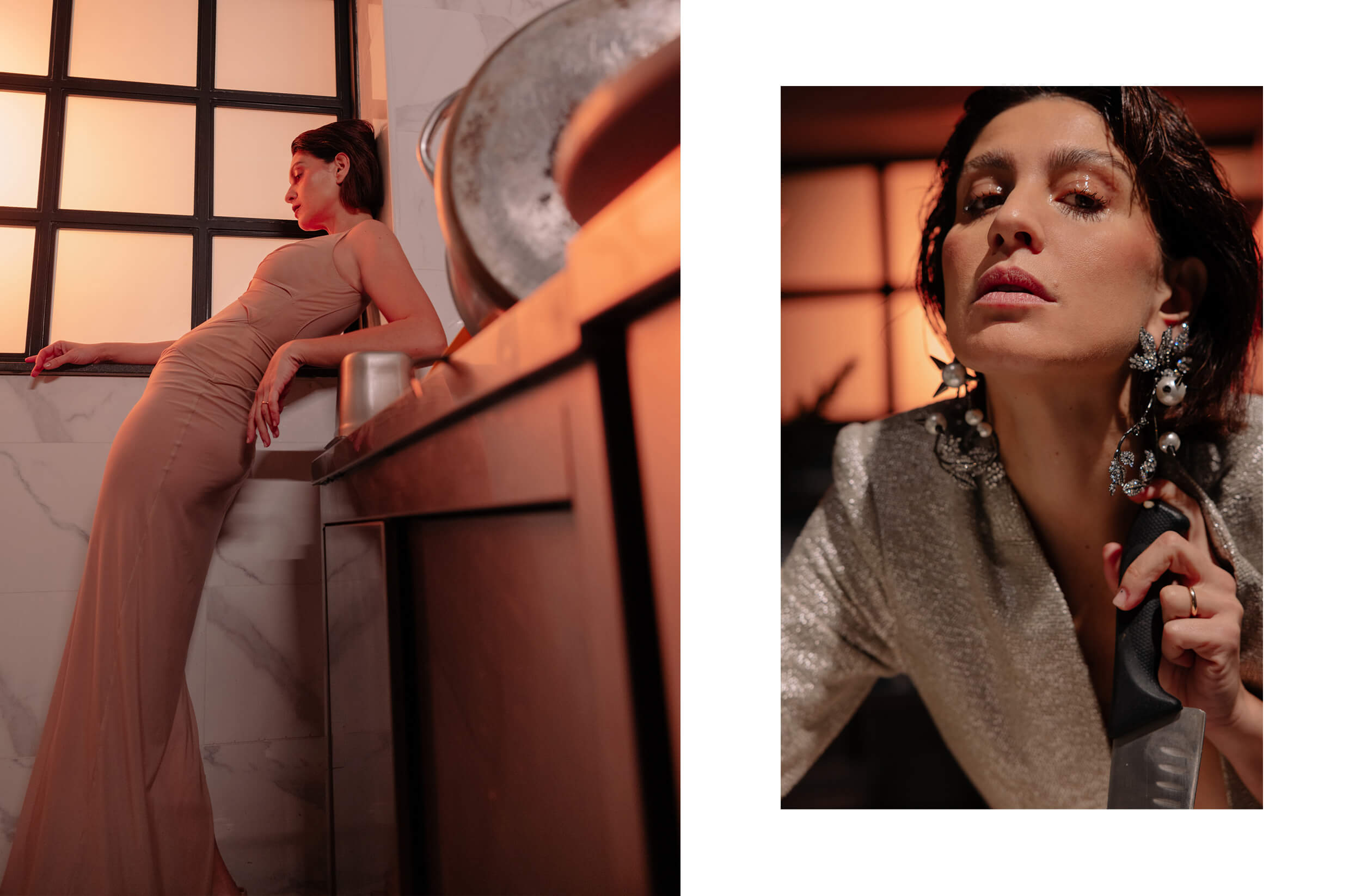Lots of laughs and lots of admiration with an actress and woman who feeds cinema and is fed with cinema: Giulia Bevilacqua knows when it’s time to have fun on set and when it’s time to focus, to psychologically deepen a character, to study in order to originate creativity.
During our smooth phone chat, with the spontaneity and straightforwardness that characterize her, Giulia told me about “Il Patriarca”, the new TV series with and by Claudio Amendola now airing on Canale 5. We discussed family dramas, the pursuit of happiness, the thirst for power, and the pains afflicting the society in which we’re living. But we also talked about childhood, juvenile rebellious acts, the burdens of leadership, and how good it feels not to take ourselves too seriously. At work as well as in life, where what goes around always comes around.
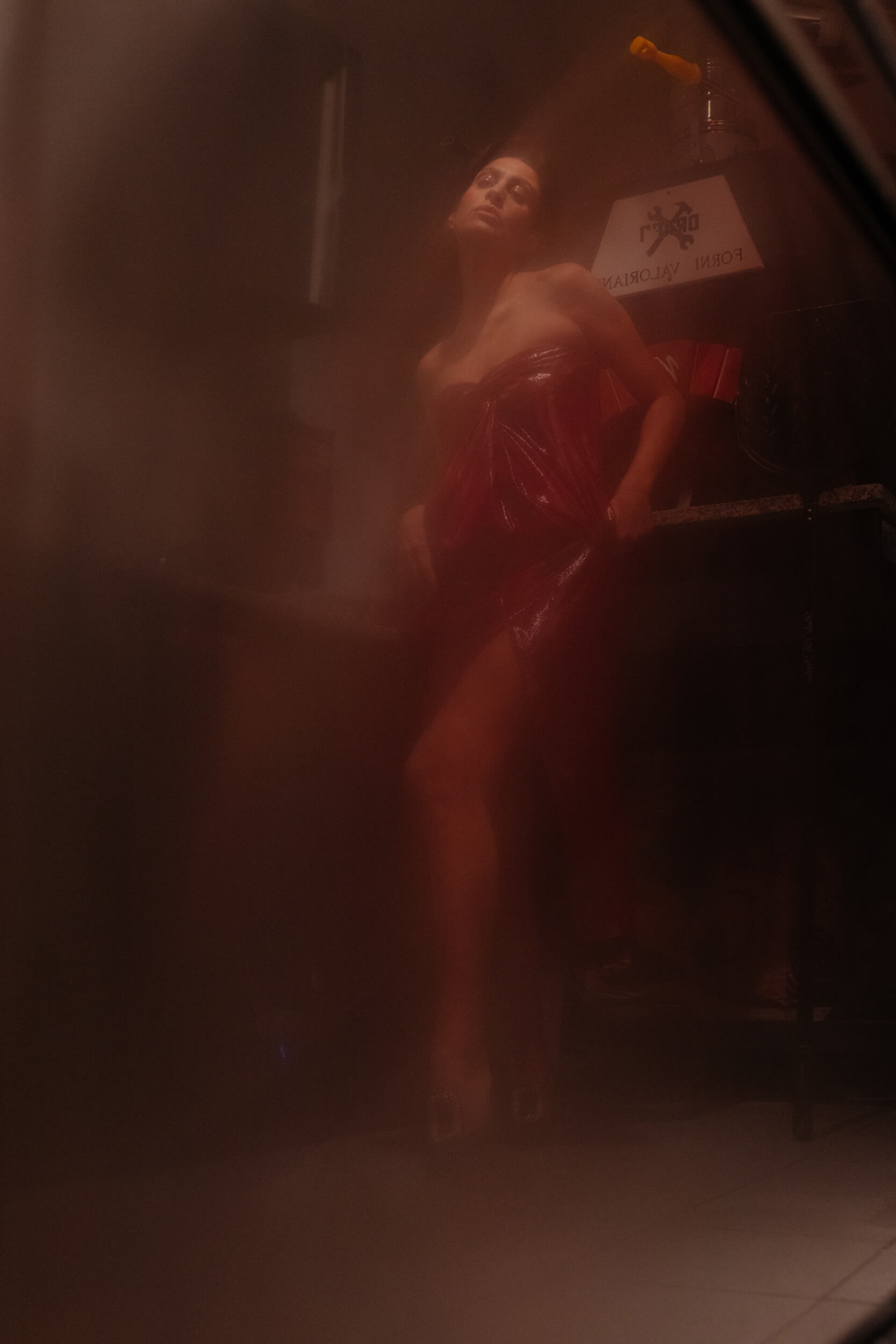
What’s your first cinema memory?
My first cinema memory is Cinema dei Piccoli in Rome, a movie theater designed for kids, located in the middle of Villa Borghese, a beautiful space in an equally beautiful area: Rome is luckily rich in very big green areas. I remember my dad taking me there to see “Snow White” and it traumatized me [laugh]. So, my first cinema memory was actually a nightmare because that film scared me a lot. For a while, I didn’t want to go back there, but such a strong, unique experience stuck with me and, after a while, I realized that I would have never been able to go without it.
This job is a passion and if you decide to do it, it’s because you feel it inside. I’ve always felt it, even as a child, but to be honest, it was certainly thanks to my parents who’ve done so much to cultivate the love for art in general, for beauty, for what can save our souls. They would often bring us to the theater, to the movies, to art galleries.
It’s important to nourish our passions, and if my love has grown, it’s also thanks to them.
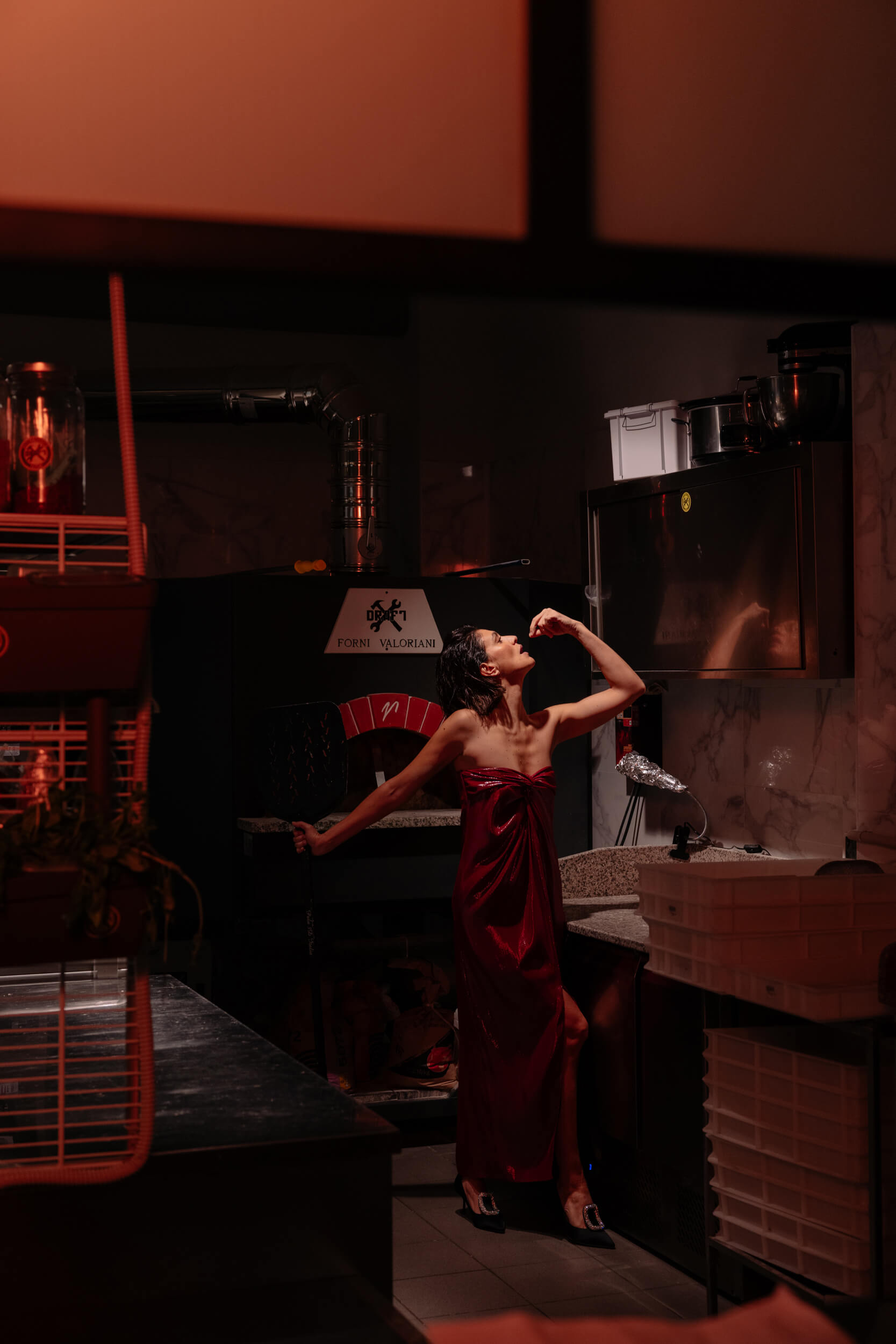
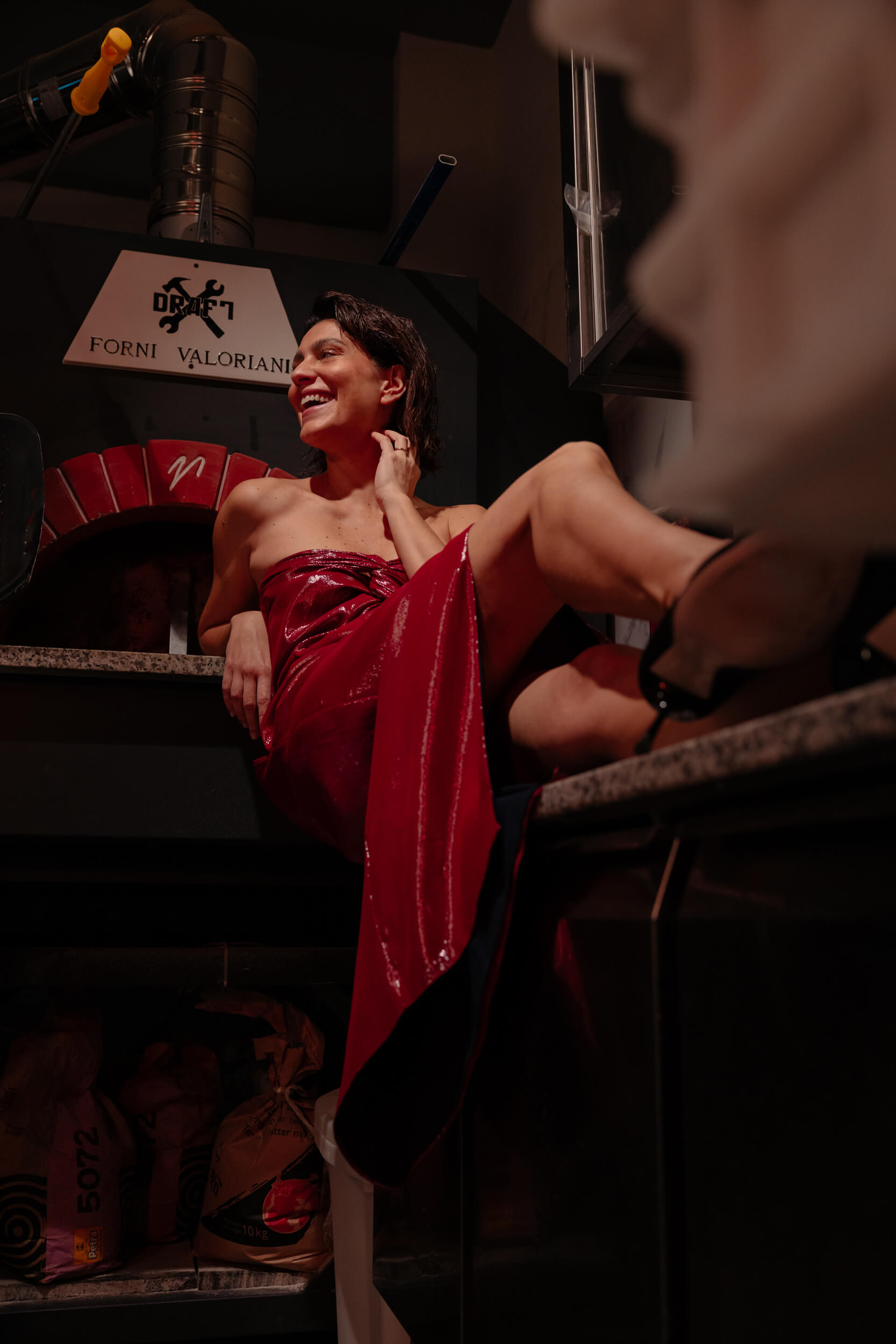
We’ll soon see you on Canale 5 in the new fiction by and with Claudio Amendola “Il Patriarca”, a story that in Italian television we don’t see very often, a family drama about games of power and how these affect family relationships and friendships. What was your first reaction when you read the script? And what goal did you promise yourself to achieve?
The show is very interesting and engaging.
It deals with a very current theme, especially in the society we live in now, dominated by the thirst for power, all the sacrifices we’re willing to make to obtain power and keep it in our hands, and the repercussions that this path we decide to follow can have on our family and relationships. I think these are very modern themes because it’s becoming a very common goal to be powerful, as we think that with power, we can get anything we want. On one hand, it’s true, but it depends on what meaning you give to life and what kind of turn-up you want it to have.
The goal I set for myself was to try and be, as always, as it’s what I do in every job, as credible as possible in the shoes of a woman who’s very far from me. My character is a very acute, plotter woman capable of making unimaginable actions, some very powerful and severe ones, in order to obtain what she wants as if she didn’t have a heart or a soul, she’s a calculator with huge ambitions and a thirst for power, an ambition at any cost. Obviously, I’m ambitious in my own way because it’s healthy to be so, but I would never be willing to sacrifice anything, especially what I think is important like family.
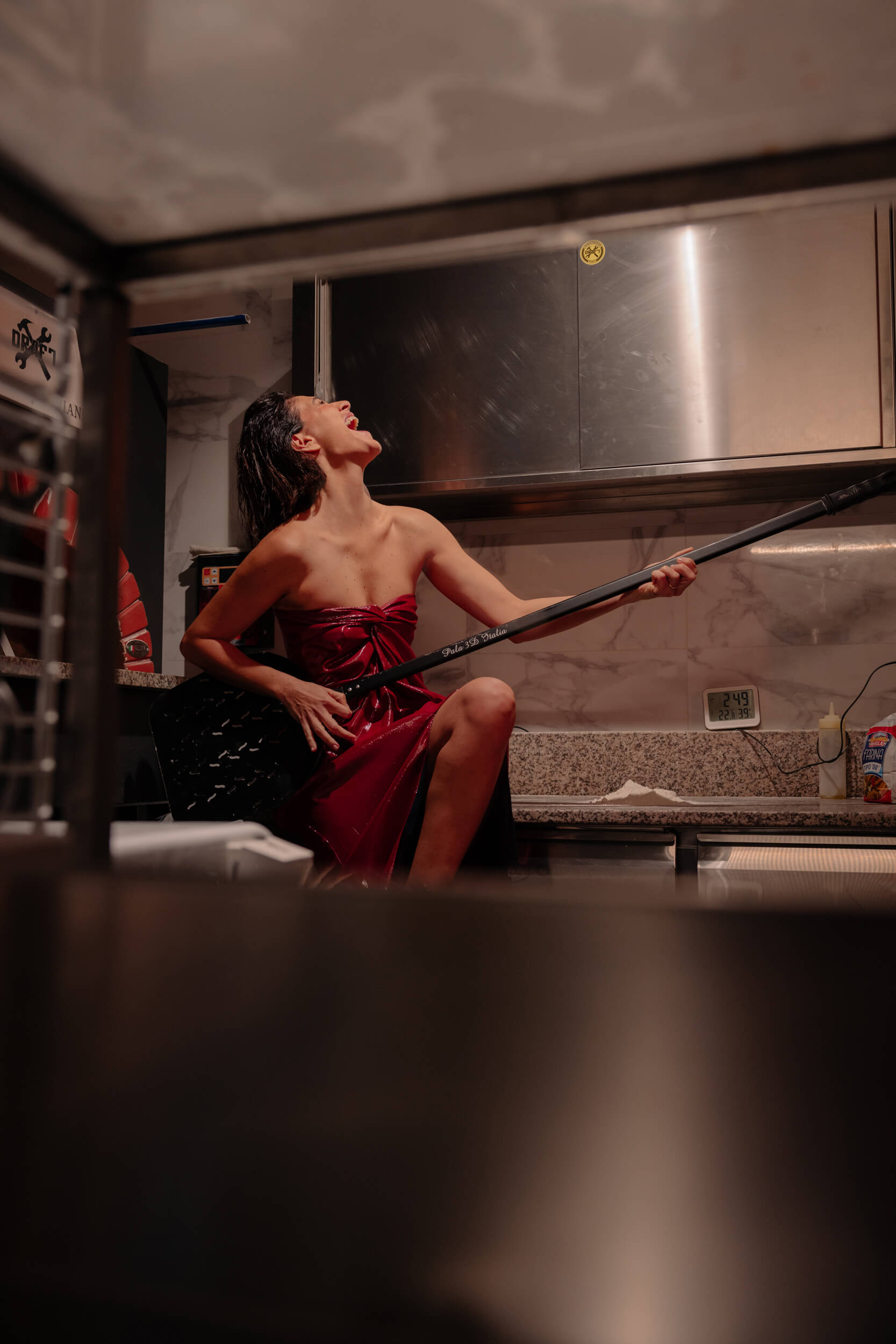
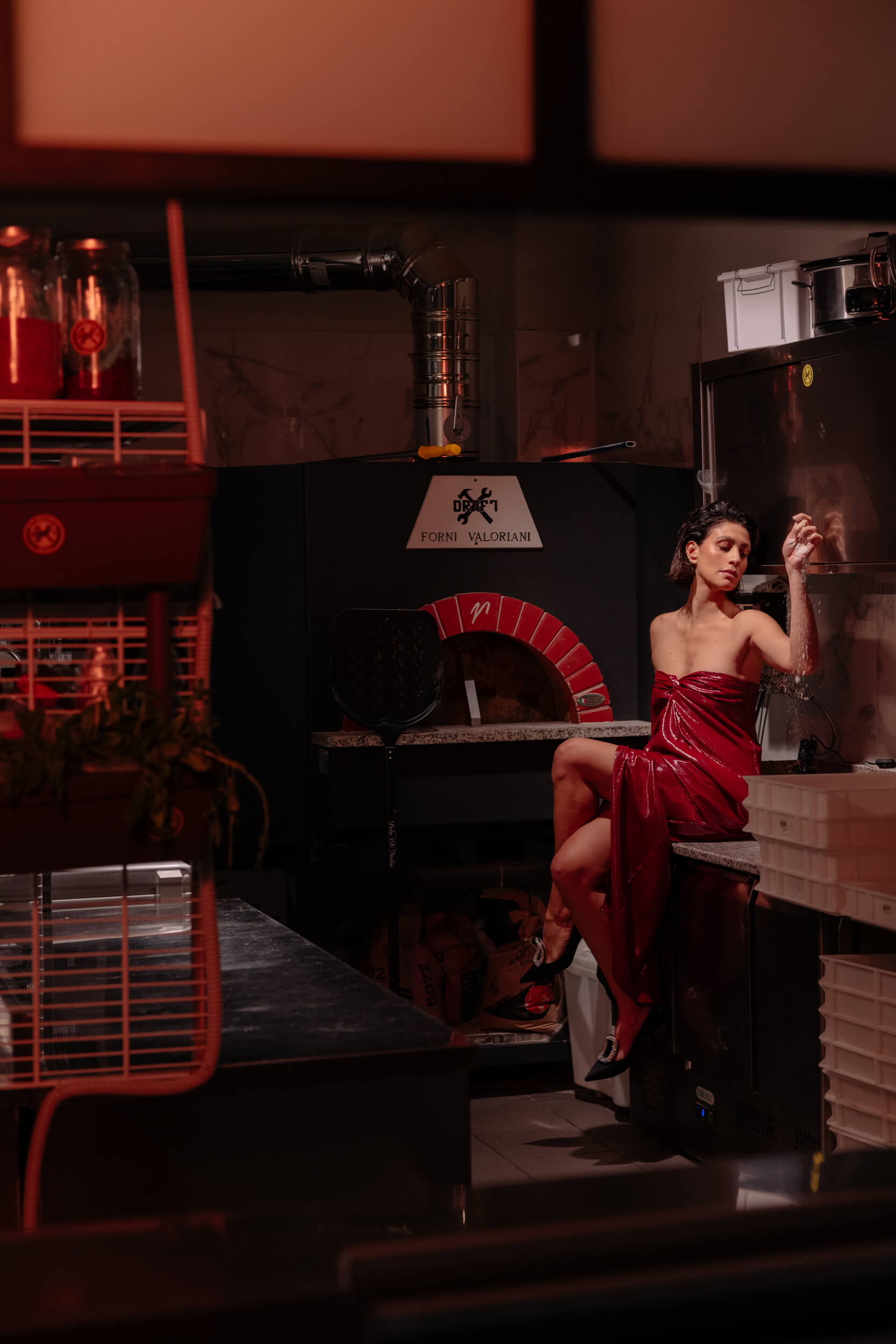
How did you approach your character, in order to find an emotional connection with her? When did you feel close to her and when did you feel distant, instead?
The key secret that goes for every character is not to judge them. In fact, when you judge them, you distance yourself from them, you move away from them, but you should welcome your character, accept their approach to life, and their way of moving, and love them. This is what I did in this case, too, giving her the human-interest sidebar, as it was also noted in the script because, as it often happens in real life, mean people always hide inside a fracture that makes them become like that. With Elisa I imagined this, I built the background of this woman, I thought that maybe she was abandoned and hurt very much as a child, and so, as a form of revenge, she bet everything on becoming someone important because perhaps she never felt important in life. Then, obviously, some find the right path and some find the wrong path, which is the one that won’t make them happy.
One of the most fascinating aspects of our job is the approach to characters which always have so many facets to work on. In this new role that’s so distant from me, if not for physical similarity, there was a more challenging psychological insight, made of research.
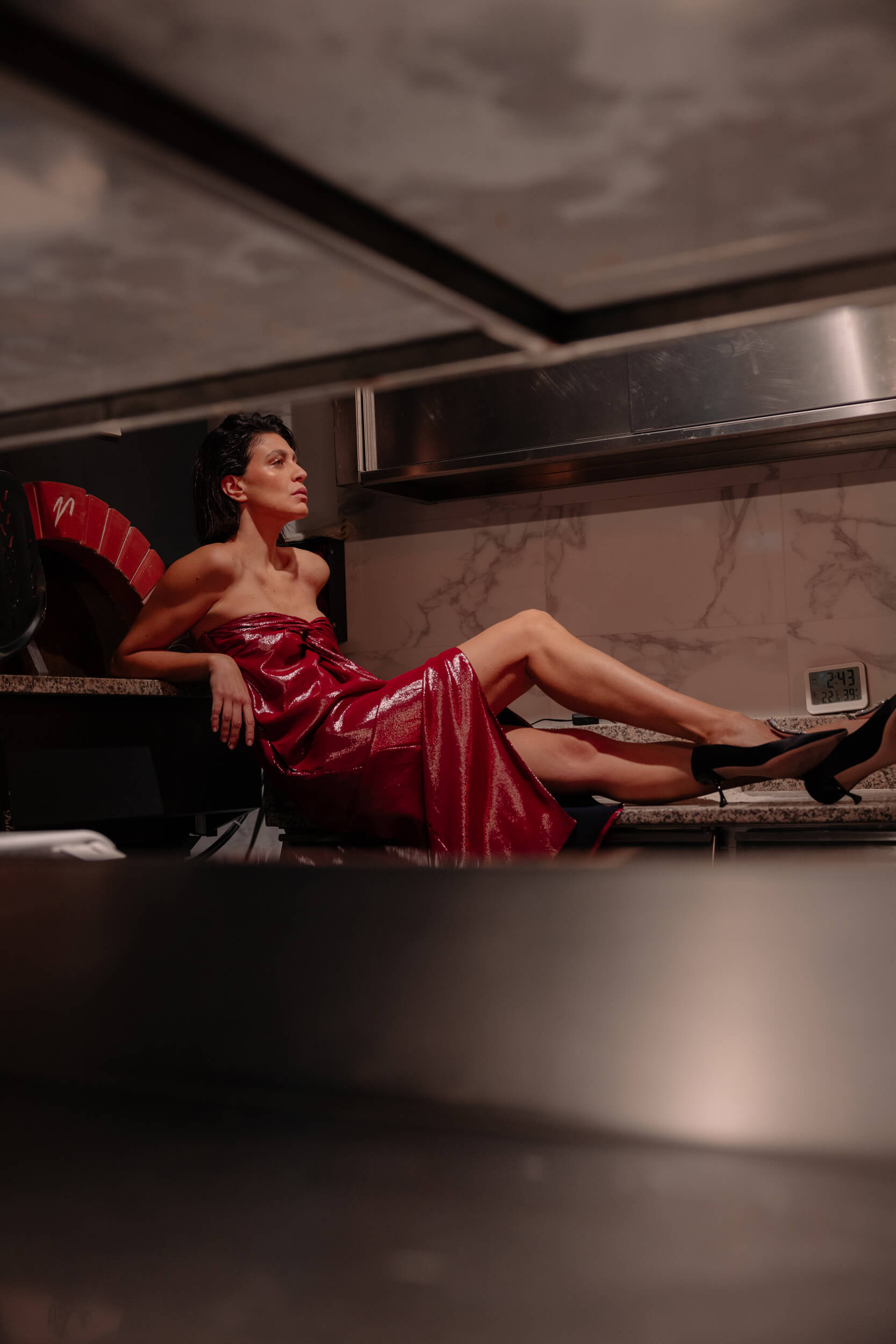
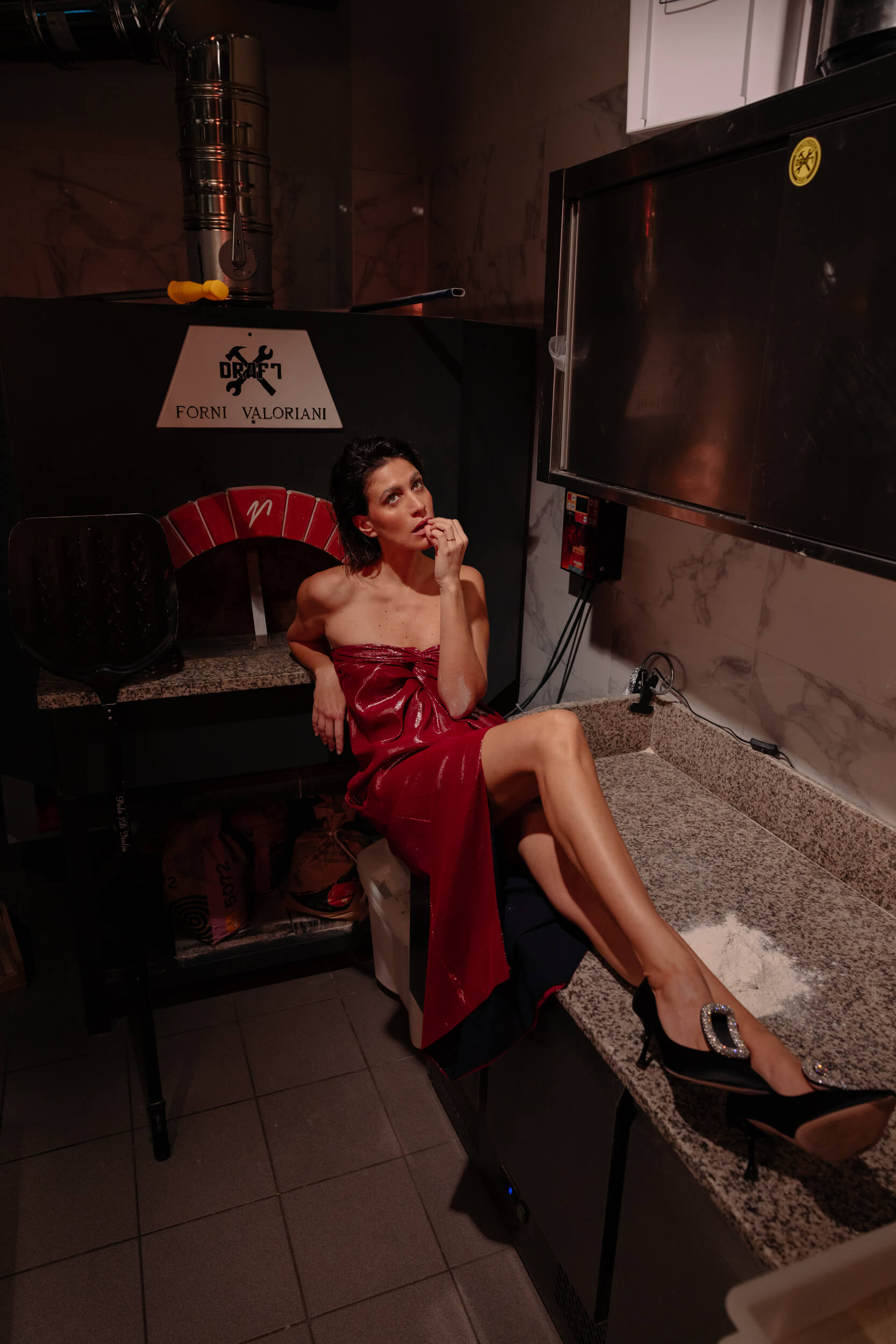
“One of the most fascinating aspects of our job is the approach to characters which always have so many facets to work on.”
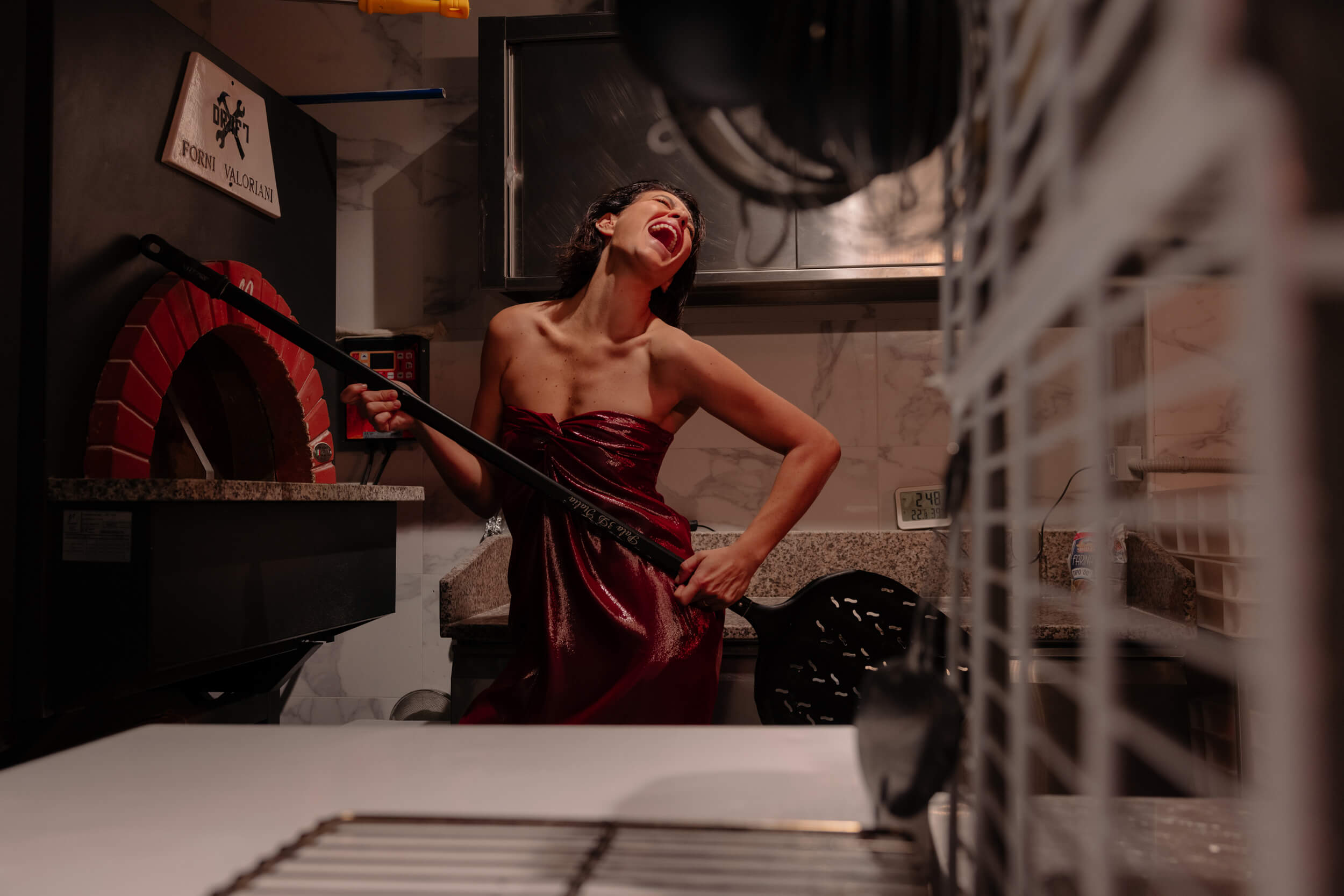
Is there anything new you discovered about yourself while processing your character and the events of which she’s the protagonist?
I found myself thinking about how diverse the world is. I imagine there are people willing to do what Elisa does, so my reflection was: “How brave, how determined these people are, what a weird way to look for happiness”. All of us interpret happiness in a different way.
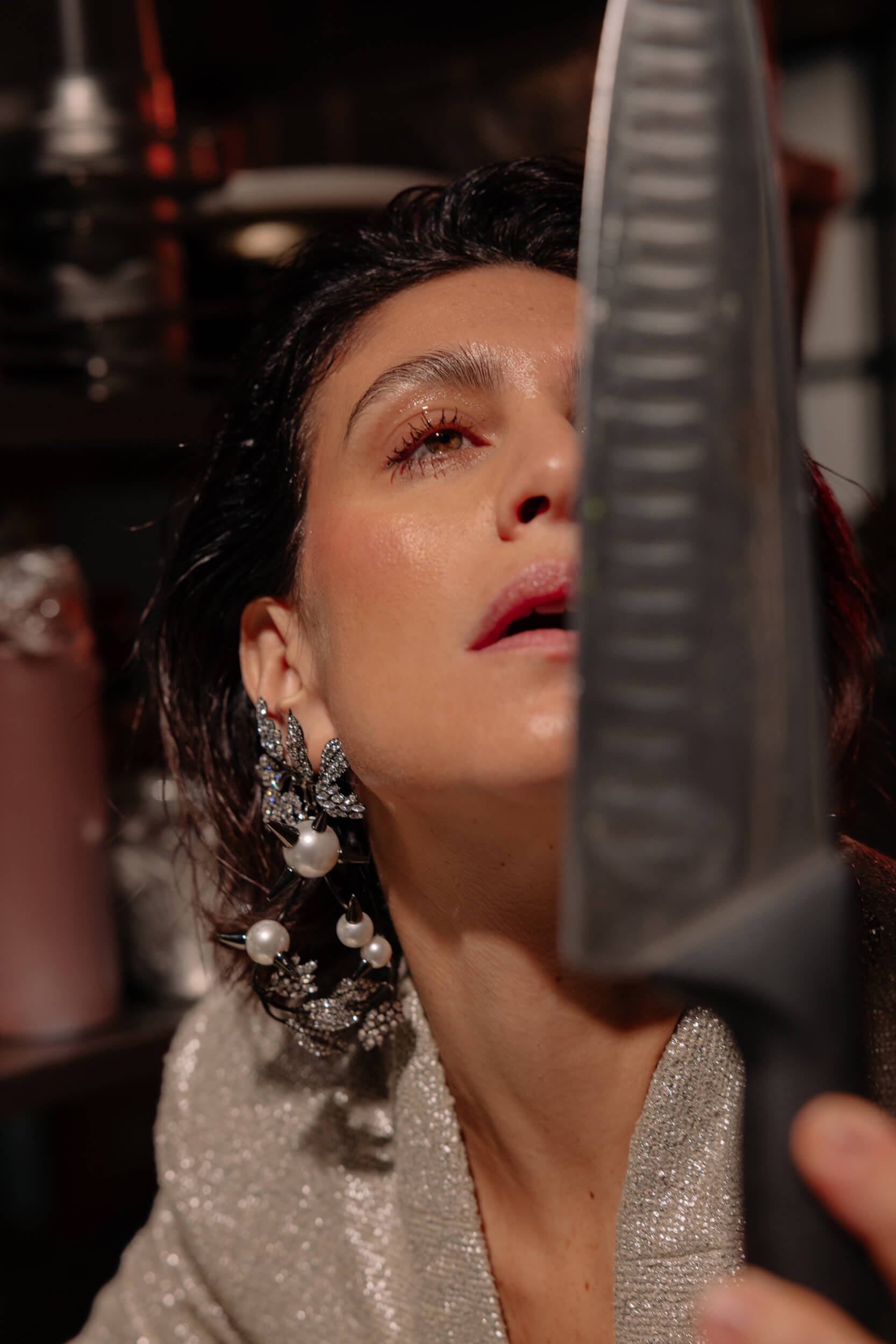
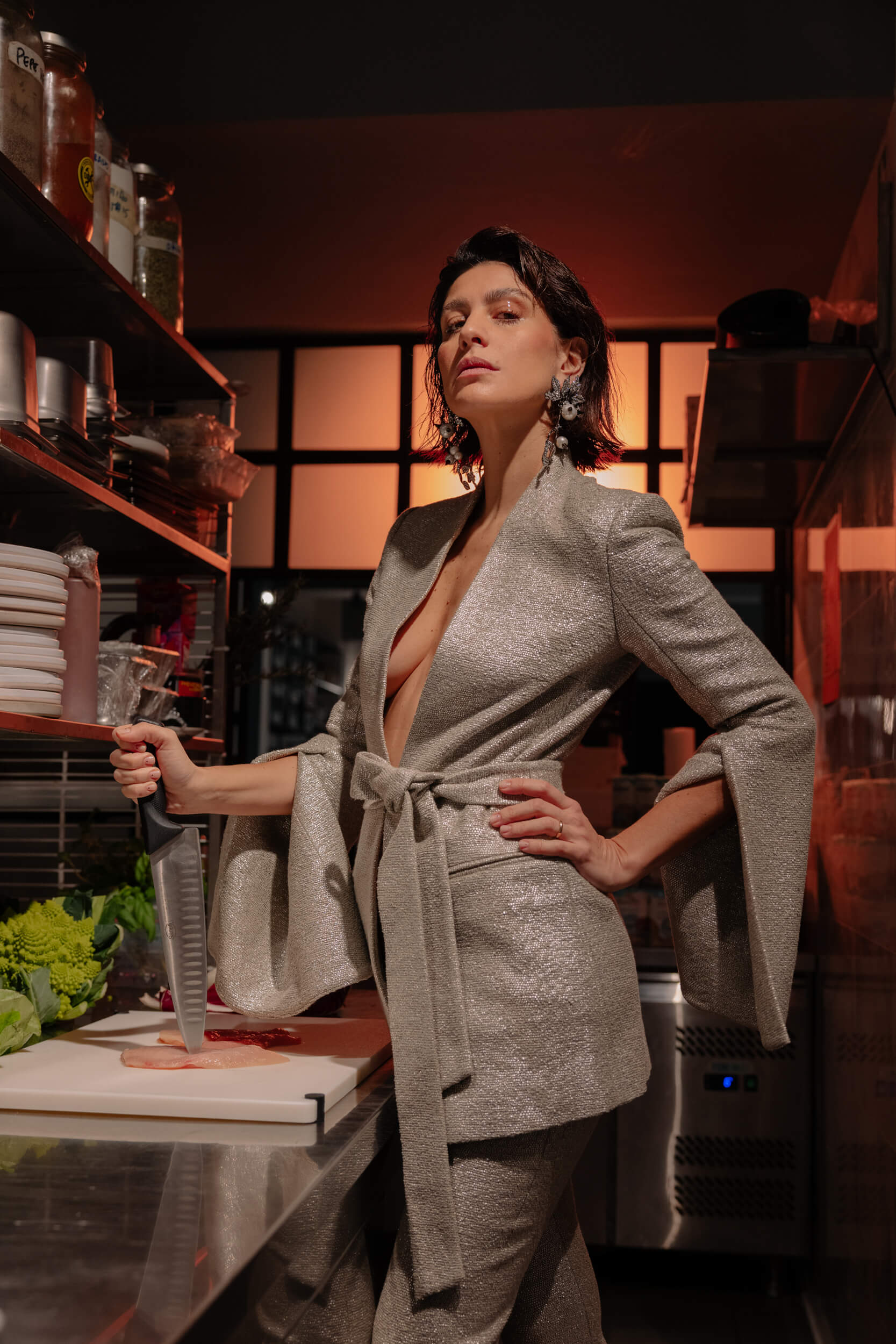
Power to be obtained at any cost, family as a safety net but also as a competitor, the historic antithesis between revenge and generosity, cowardice and bravery, betrayal and friendship: these are the themes of the six episodes and also dynamics present in everyone’s everyday life; what do you want to transport from the small screen into the houses of Italian audience members and what did you bring home with you after this experience?
I think that everything we do is not only for entertainment, fun, or distraction but also to trigger reflections in people. So, by watching this show, the audience will most likely have the same thoughts that I had, about how important it is to try and direct your research toward a path that brings some happiness that’s not in any way linked to power, success, or money.
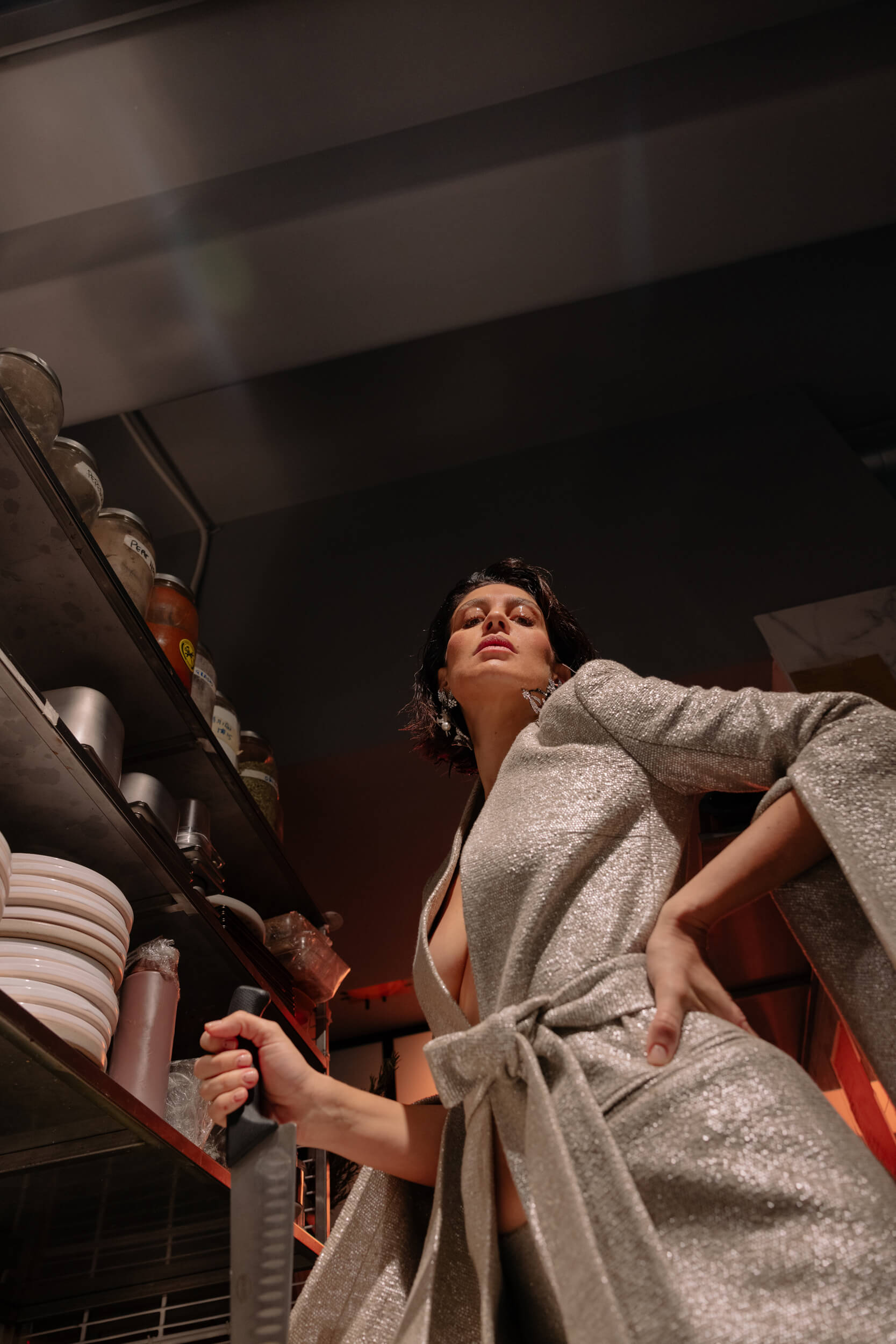
To hold power in your hands, or more concretely the helm of a company or a project, is it something that attracts you or, rather, scares you?
I don’t think I’d be able to do it because I don’t have the spirit of a leader!
Here’s an example: when I started to have someone in my house helping me with my kids, as I, myself, have never had it for me when I was a kid, so I didn’t know how to behave, to a point where she said: “Come on, please let me do something, you can’t do everything yourself, you need to learn to delegate, tell me what to do!” [laughs]. That of organizing or delegating with the spirit of a leader is a condition that doesn’t really belong to me. Just think of the job I do: ironically, I’m chosen all the time because actors are people who “never make it”, they’re never sure about anything, and they always put themselves to the test. If I didn’t have that kind of attitude, if I wasn’t willing to accept this precariousness, which you don’t have when you’re at the helm of something, perhaps I would have already given up by now.
Throughout Italian history, we’ve been witnessing rather stormy generational changes in family-run top-level management. Just think about the Guccis, the Ferreros… Why do you think we’re so fascinated by these affairs that are often so dramatic, up to putting them on a screen so often? Why are we intrigued by stories of patriarchal crises?
Because it’s our history, it’s everyone’s history, the drama is interesting, plots are interesting, successions are interesting. Inevitably, human relationships inside families are relationships that we all know and that each of us has inside our house, so, seeing them again, although exaggerated, different, and romanticized, we recognize them as akin to us and so, inevitably, they attract us, catch our attention, also because we want to figure out what kind of turn-up these things have.
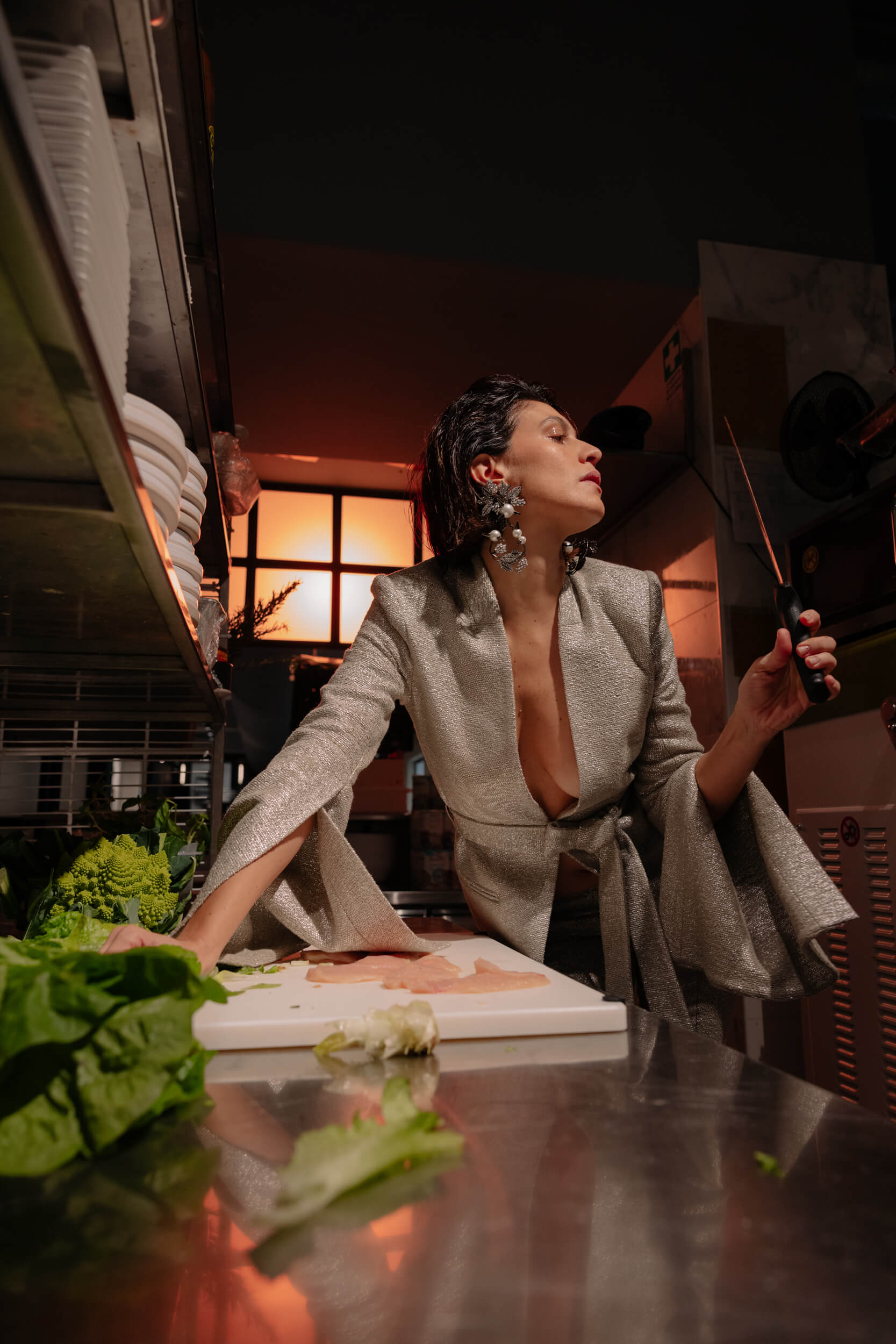
“it’s our history, it’s everyone’s history“
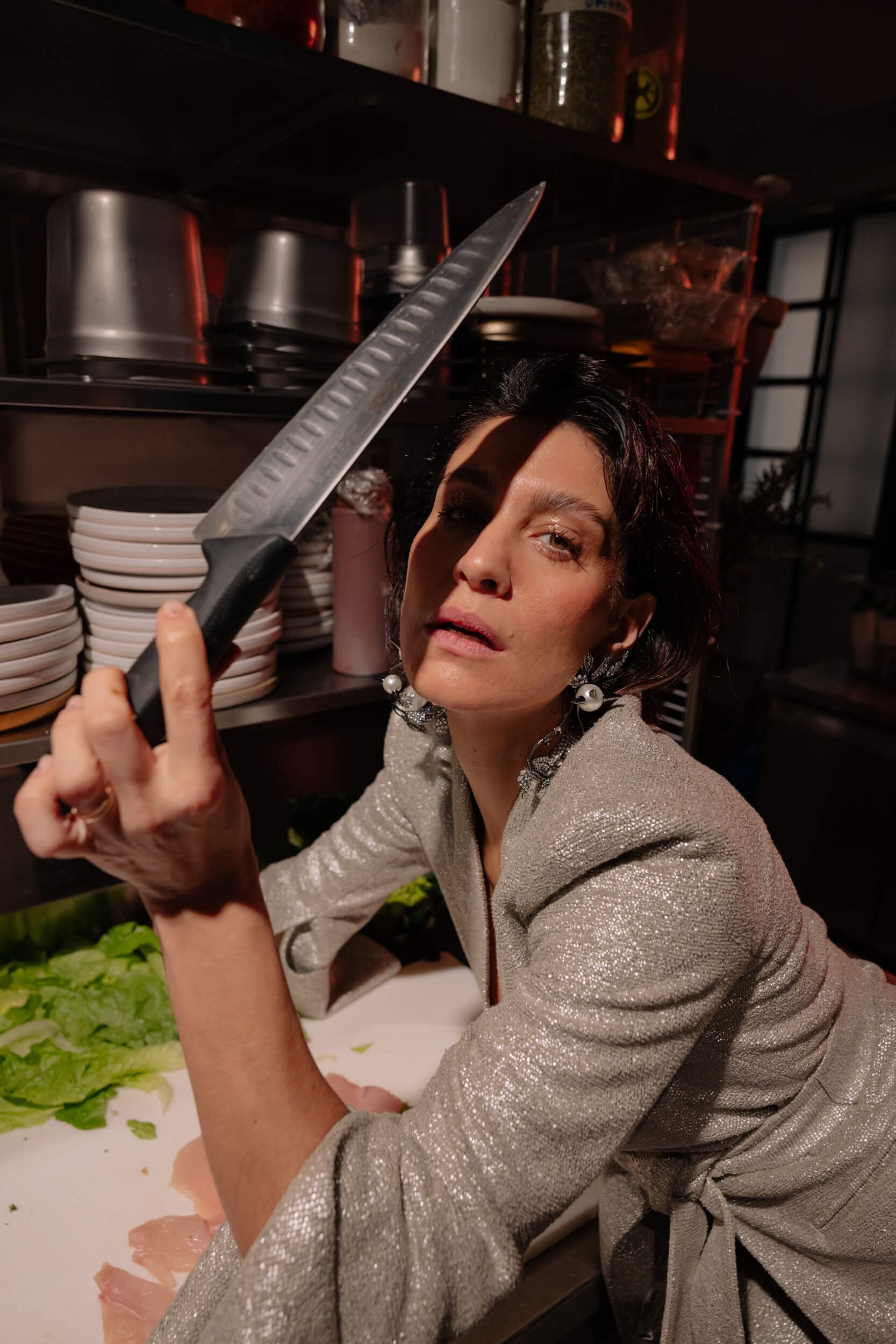
How would you describe “Il Patriarca” with just one word?
Engaging because it tackles important themes like organized crime, family, thirst for power, and human relationships. So many things happen, there are lots of action scenes, love scenes, and a thick spiderweb of emotions and events that can’t but be intriguing.
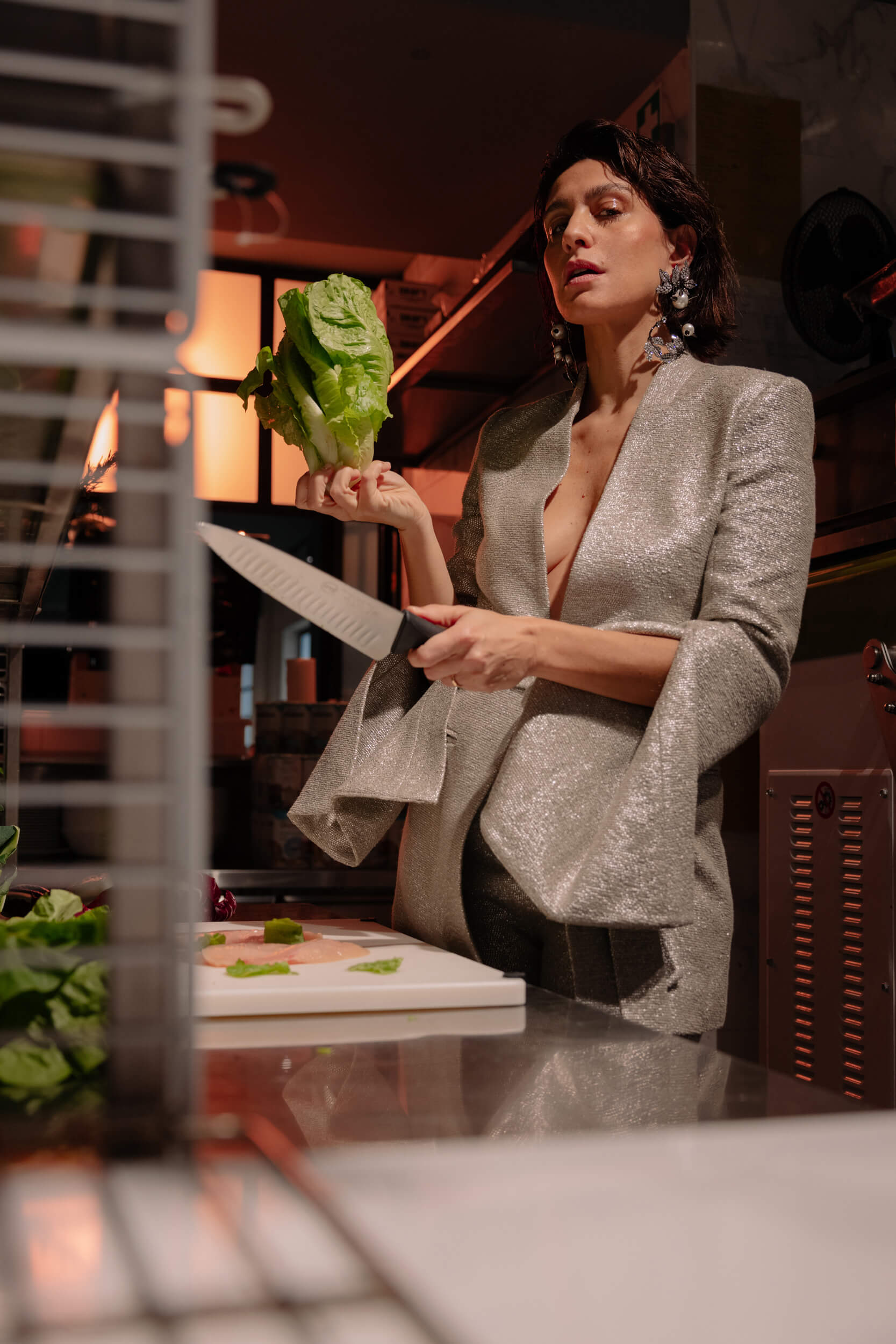
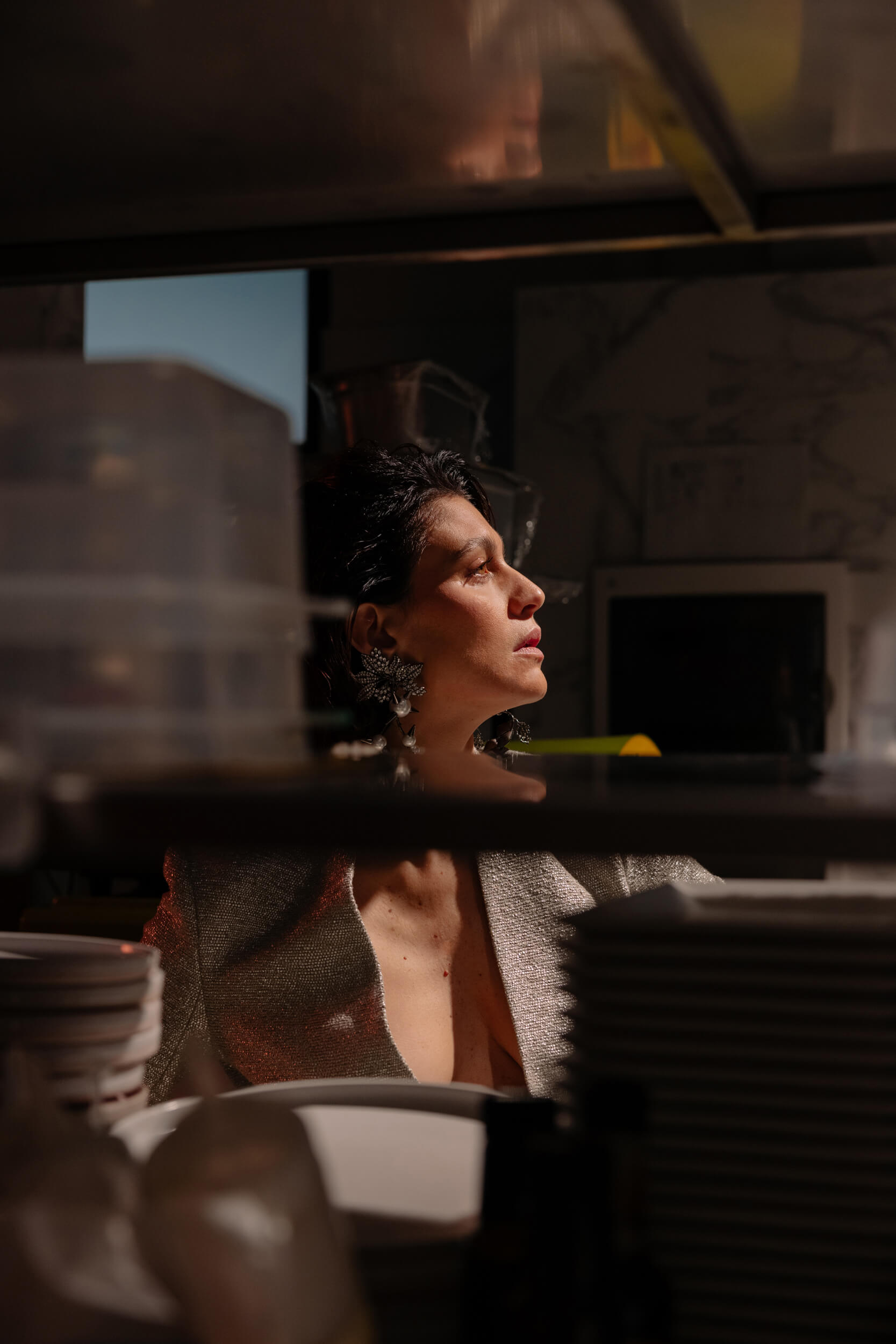
What were the hardest and the funniest scene to shoot?
The hardest was a scene that will be featured in one of the last episodes, which is about something that no woman, not even Elisa who’s apparently so strong, can face without being scarred in her deepest intimacy. It’s about intense pain as it includes failure, betrayal, and conspiracy against something personal, intimate, and very important about my character that will bring Elisa to indulge in a great desire for revenge.
The funniest scene to shoot was any scene with Claudio Amendola. You know, we’ve been knowing each other for years, so there’s complicity and fellowship. We often had fun playing with others. Like one time, I got on set and, with the complicity of Claudio, I irrupted in a scene where my dear friend Primo Reggiani was acting a very serious monologue in the police station, and I jumped on him and gave him a surprise kiss! But Claudio and I were together in that. As a director, he’s super serious, very precise, and on point, he doesn’t distract himself, he has very clear ideas, he only films what’s necessary, so it’s very easy and very nice to work with him, but at the same time what’s cool is that, from time to time, he gifts you with moments of fun and play, which is right when you do this job. Claudio, in other words, allowed me to be “dumb” on the set as I am in my everyday life when it was appropriate to be so. I think I’m a very disciplined actress, however, I really like not to take myself too seriously, I like to play games, or be ironic with my colleagues and with the crew, those are the moments that will stick in your memory forever.
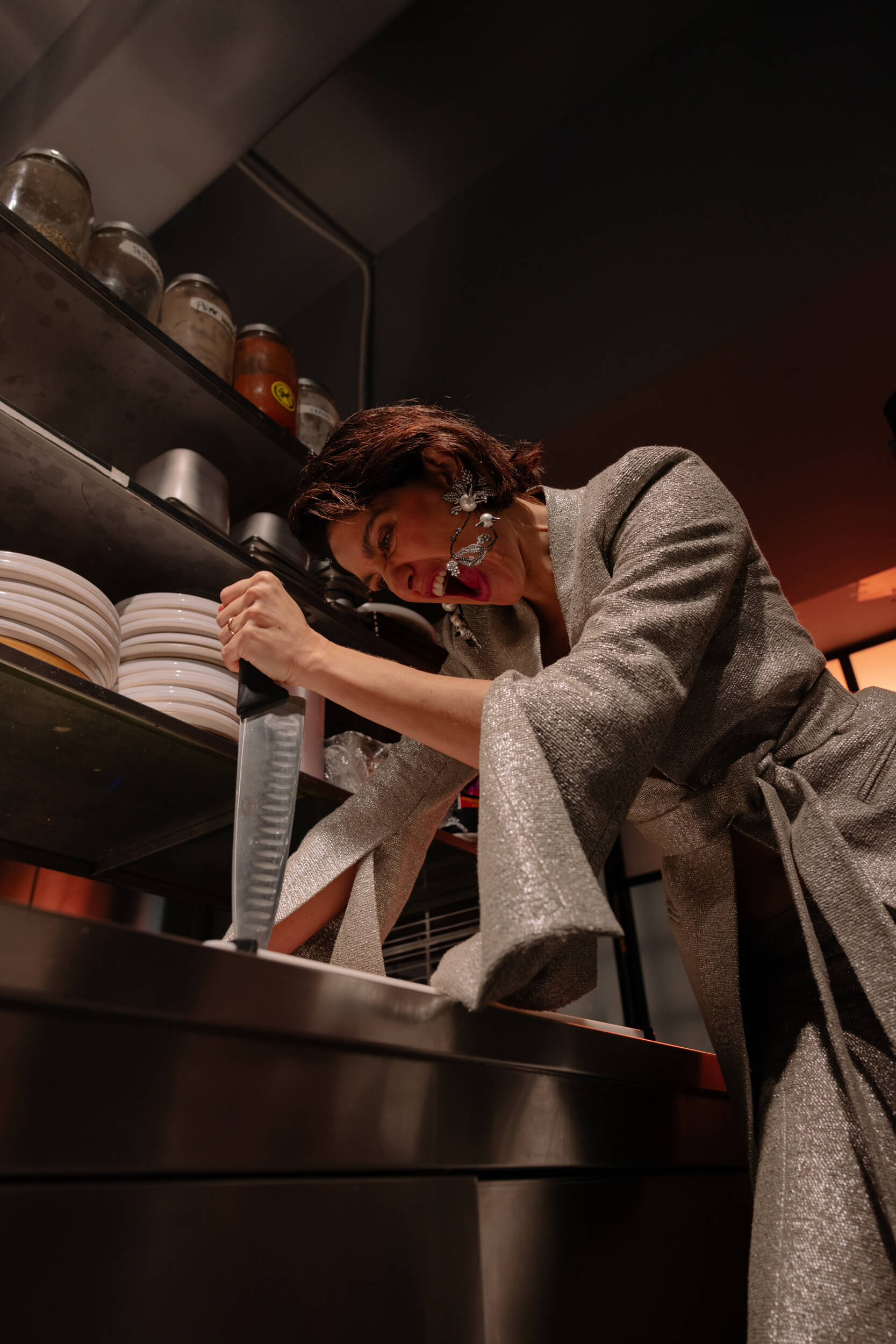
“I think I’m a very disciplined actress, however, I really like not to take myself too seriously, I like to play games, or be ironic with my colleagues and with the crew”
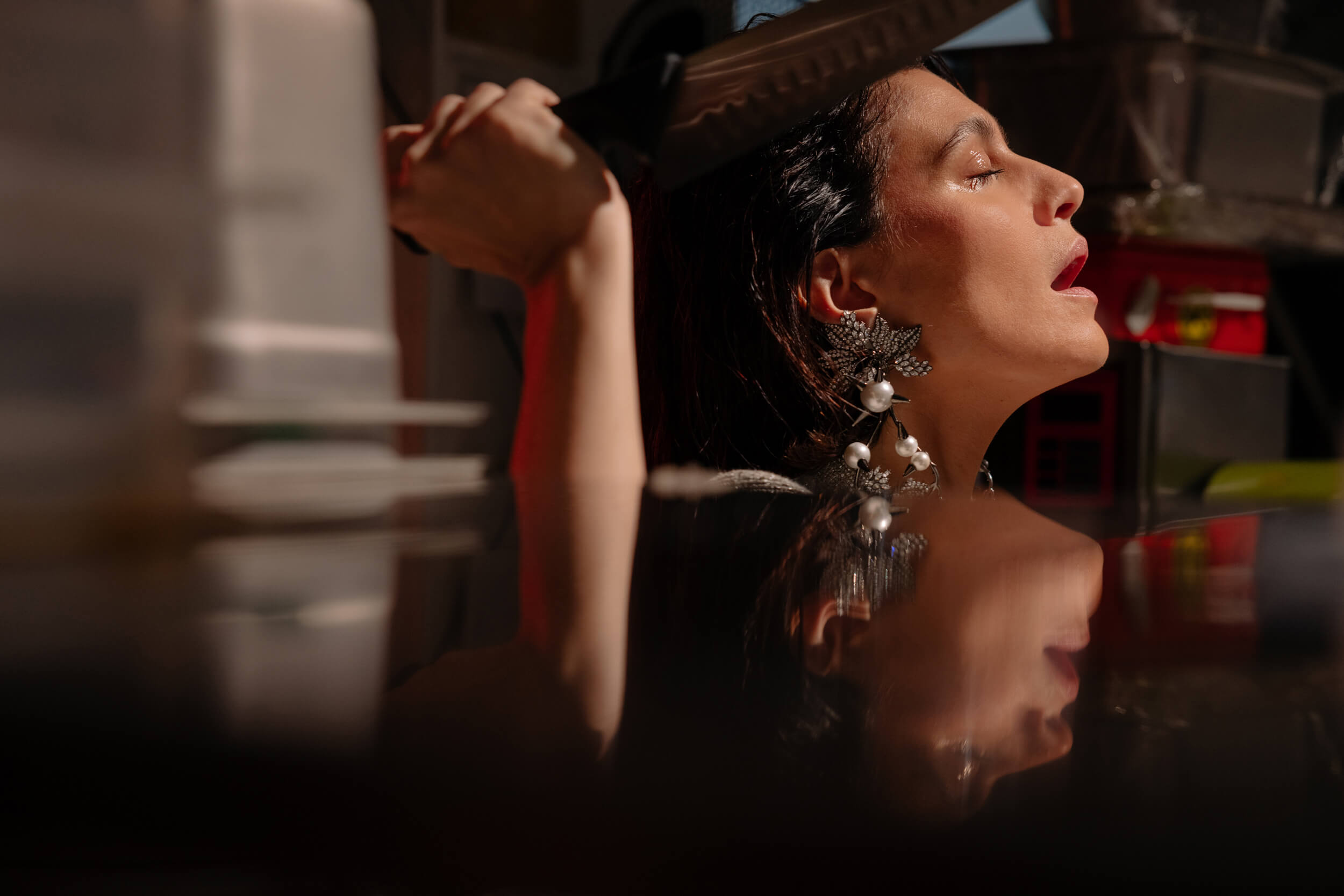
What usually makes you say yes to a project?
I’ve been thinking about this lately. I hardly ever say no, actually, I only do that with things where maybe I perceive a taste that’s different from mine. In my opinion, almost all stories are worthy to be told; then, some are written better than others, some characters are more interesting than others, and some are less faceted than others… But I’m kind of a “set addict”, my job is also my passion, and I need to be on the set, so when something is offered to me, unless I feel like the story is heading towards excessively superficial, fake directions, maybe it’s because I’m always offered interesting characters, I always find a reason to say yes.
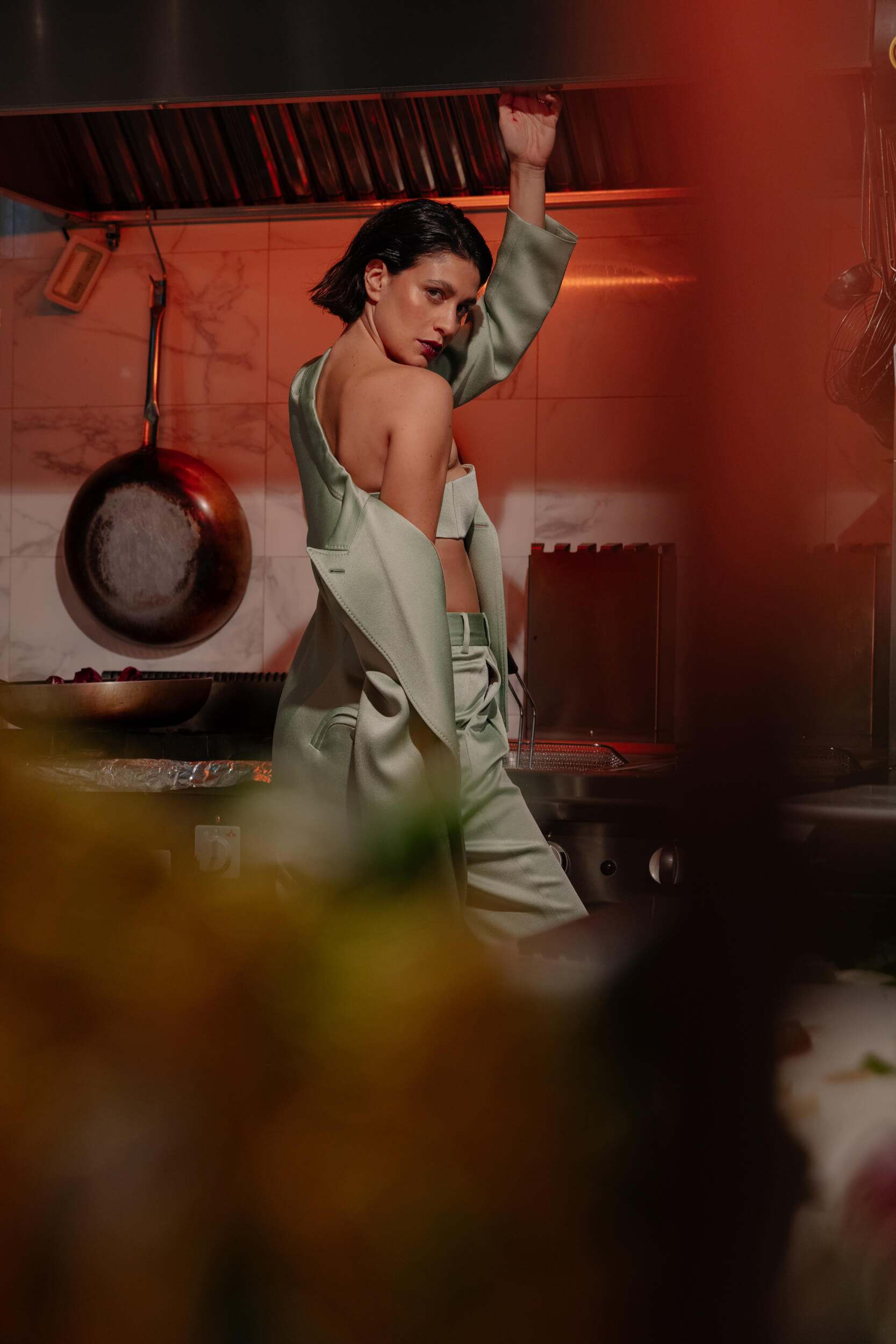
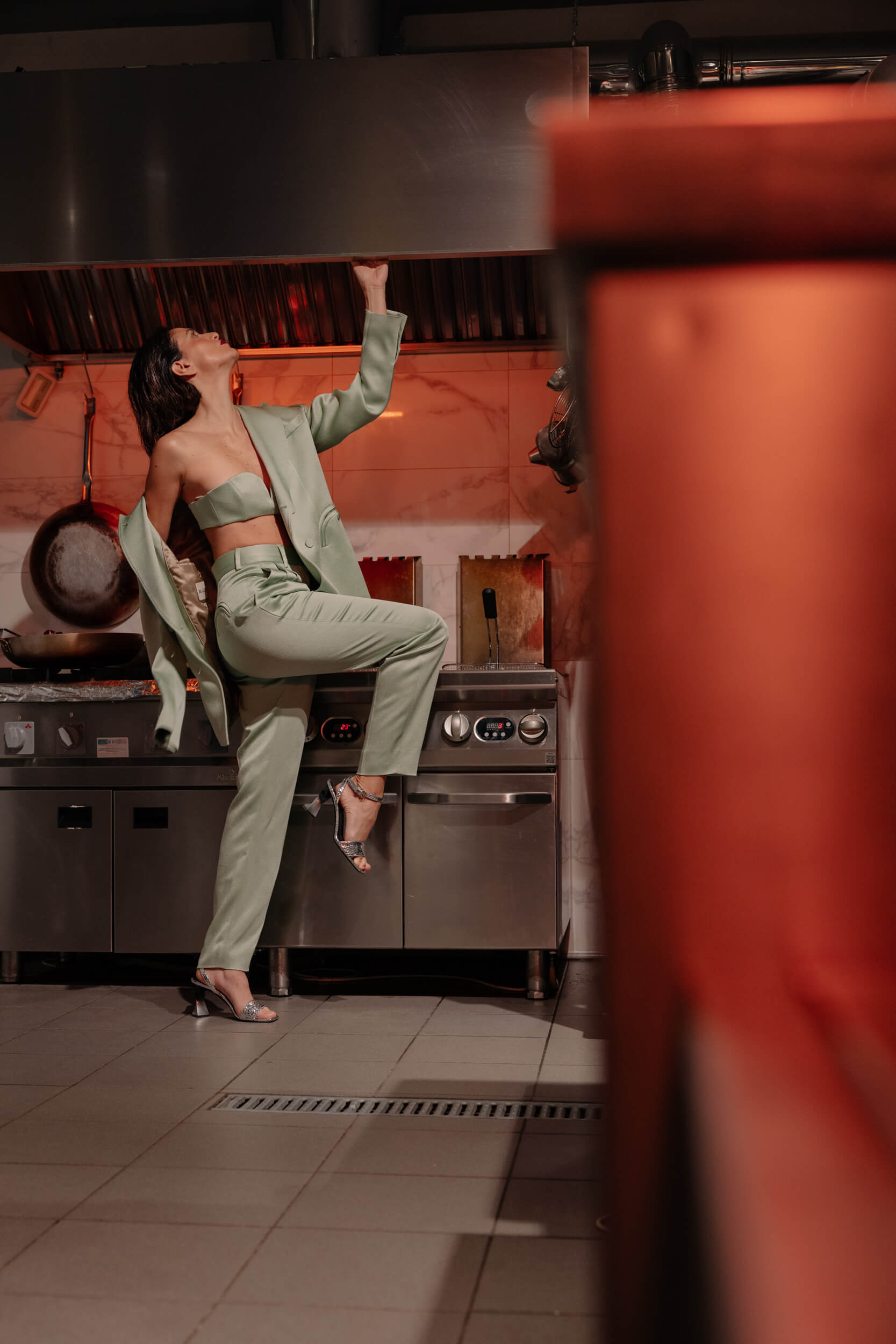
Do you tend to be more rational or irrational when you prepare and give life to a character?
The preparation of a character is certainly more rational. When I get the scripts, I read them, study them, make an outline, ask myself questions, and think about how my character would answer, I figure out their background, I imagine what kind of life path they could have followed. Then, instead, on the set, I’m more empathic, I listen to my emotions:
I think one needs to study and then forget about it all, in order to make it all feel natural and spontaneous because my top priority is to always be authentic, always be credible in the shoes of any character.
In order to be authentic, knowing your lines isn’t enough because everyone can do that, but it’s among the small goals you’ve set for yourself that you need to find authenticity, and that really comes easy to me if I let myself go. Once I’m into character, if I let myself go, the lines come by themselves. In other words, I almost always follow concrete goals; in general, I believe that you always need to think that you’re doing something because you want something else to happen, and that something that happens always needs to be a physical, concrete act, and so the goal is achieved, in acting as well as in life.
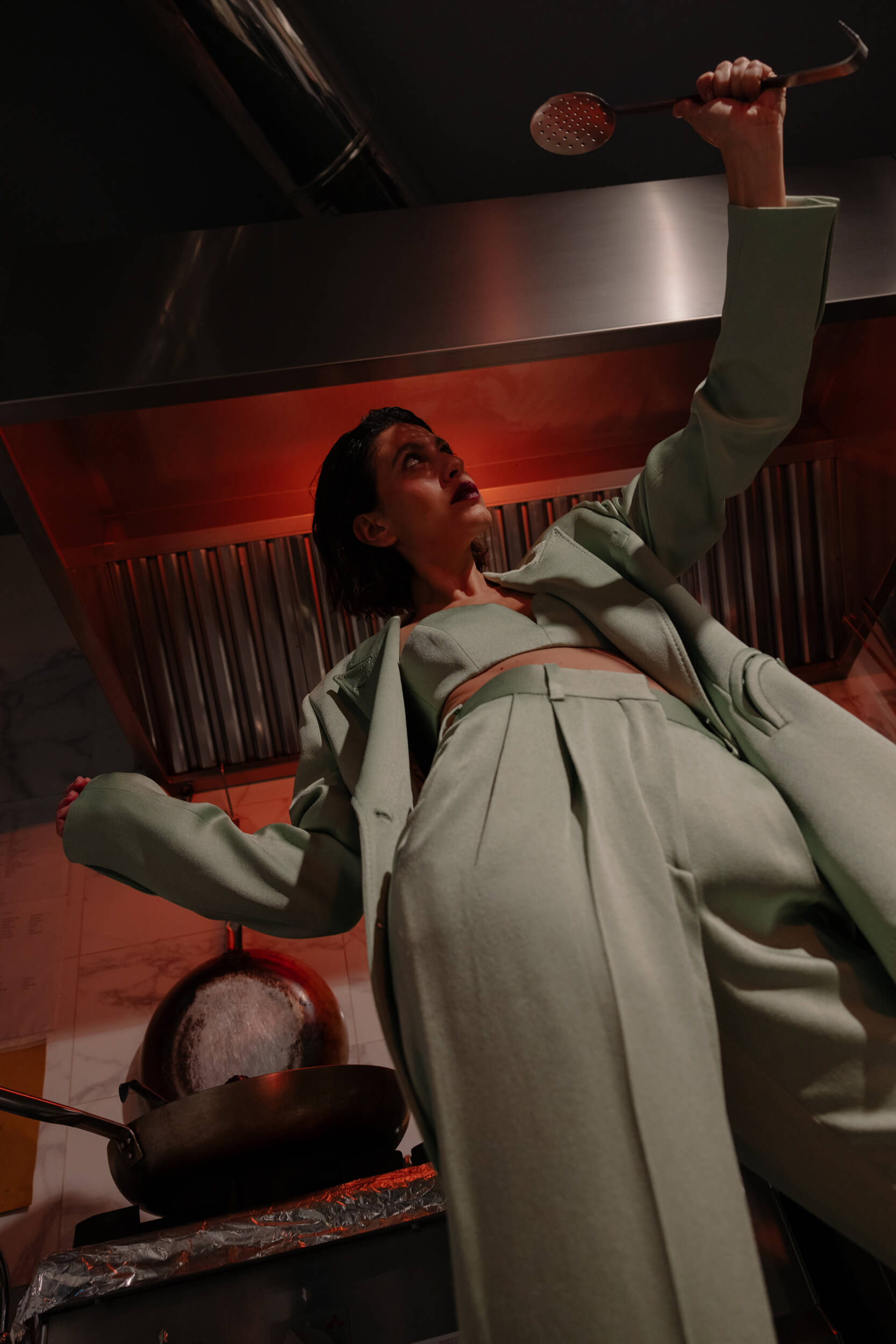
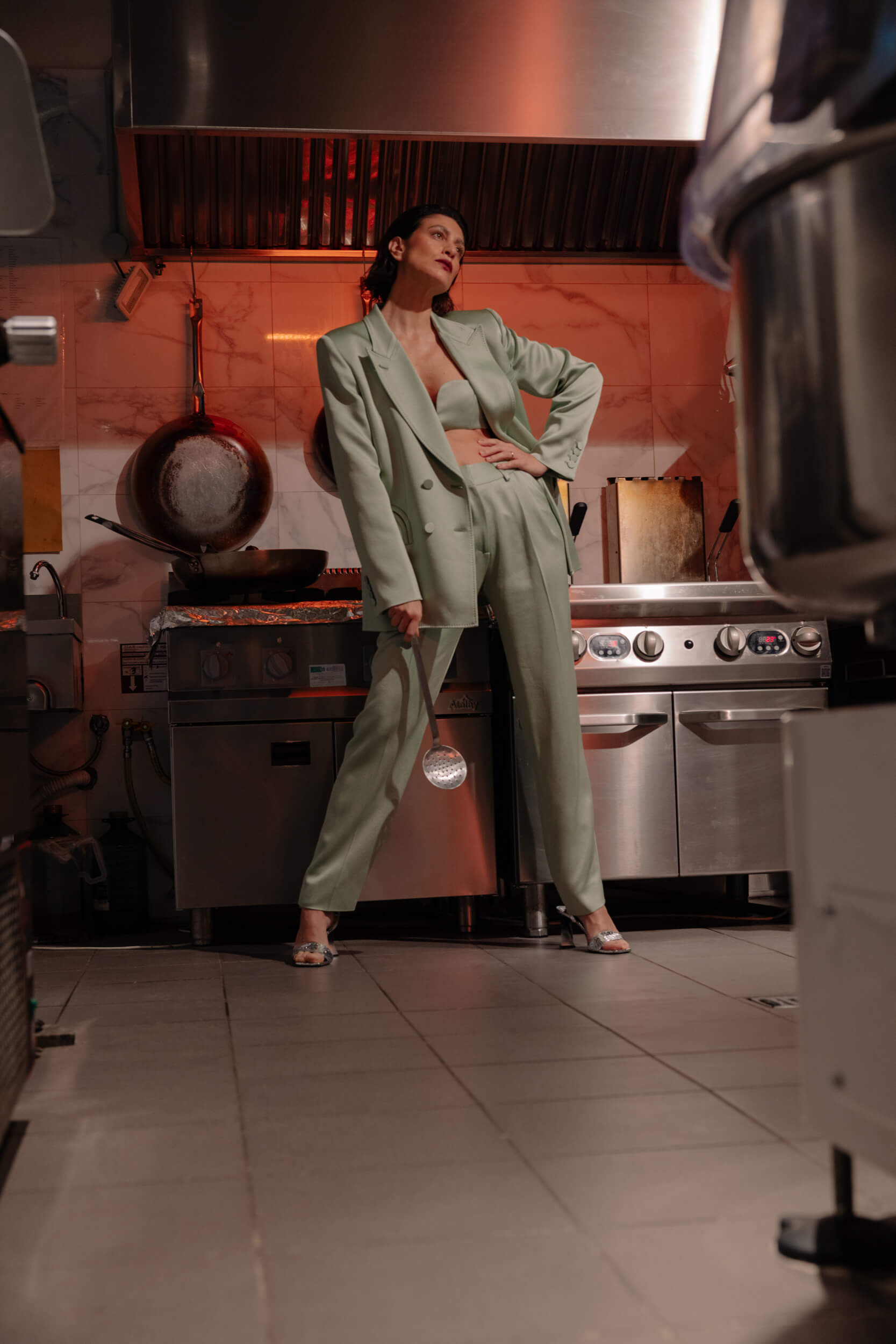
What’s your must-have on set?
For a long time, I’ve had with me a coin that they gave me on the set of “Gangs of New York”.
Back when I was a student at the Centro Sperimentale, we went with the whole class to visit that set and I remember that a group of extras noticed us and one of them came to me and gave me this prop coin, which was a reproduction of a coin from that time, and he told me: “I don’t know why, but I see that you have a special light in your eyes, so I hope this coin brings good luck to you. Hide it because if they find out that I’m giving it to you, they’re going to kill me! [laughs]. We were a big group of students, so the fact that he gave it to me was very nice. I mean, for a long time I’ve kept this coin in my wallet, but now I keep it safe at home.
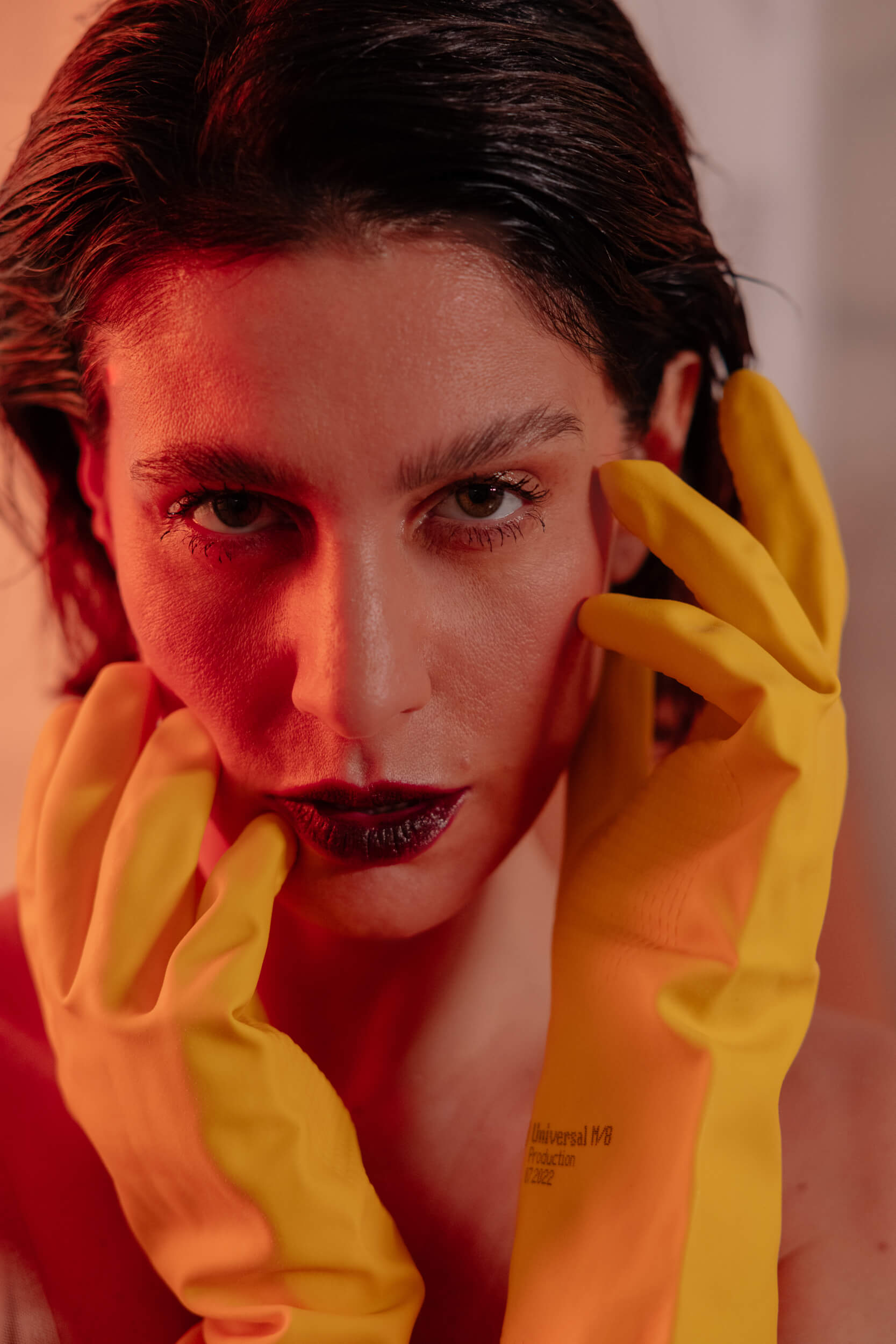
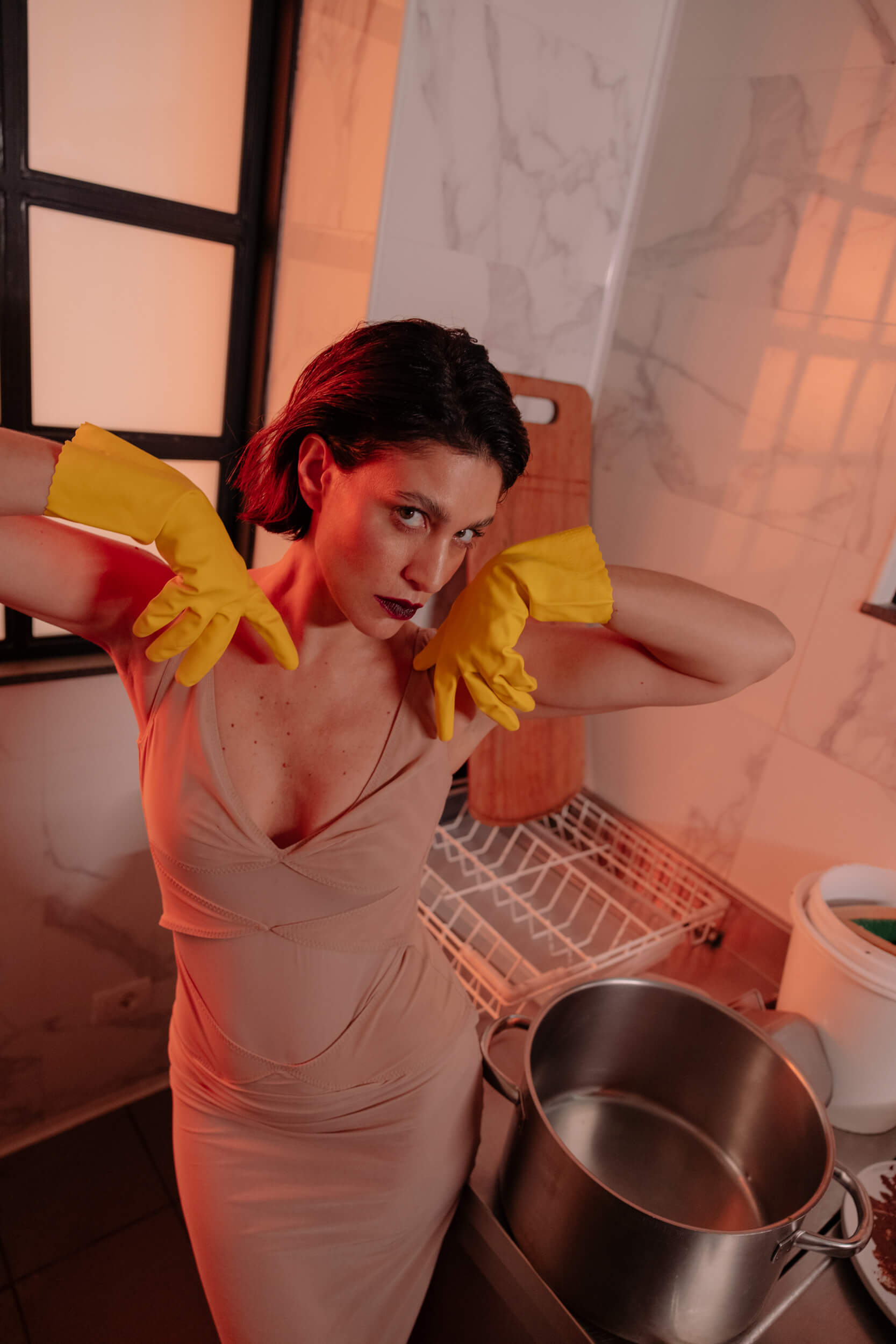
What’s your biggest act of rebellion?
It was an act of courage, that is believing in this dream.
In my family, everyone has a university degree, and for my parents, the world of acting was linked to a superficial idea. In fact, in order to get into the Centro Sperimentale, I did my selections in secret, without telling my parents, so I lied to them every time I had a test to do, I told them that I had university tests to do, which was plausible because I had also enrolled to university. Eventually, I got into the introductory trimester which meant that I would have had to go to Cinecittà for two months. So, I told my parents, and they said to me: “Sure, Giulia, if you want to do this, try, and then if things don’t work, you’ll go back to university”. A reaction that surprised me. However, in that phase of my life, I was brave and also a bit rebellious because I rebelled against what I thought my parents wanted me to do, and it was the first thing I did only for myself. Then, you know, as kids we all have an idea of our parents, of what they expect from us, that’s different from the truth. Now, as a mother, I perfectly know that parents only want what’s best for you.
All in all, rebellion is nothing but seconding your desire that maybe goes against some schemes, rules, and laws. You always need to fight a bit to earn your own space in this world because otherwise, it’s a mess.
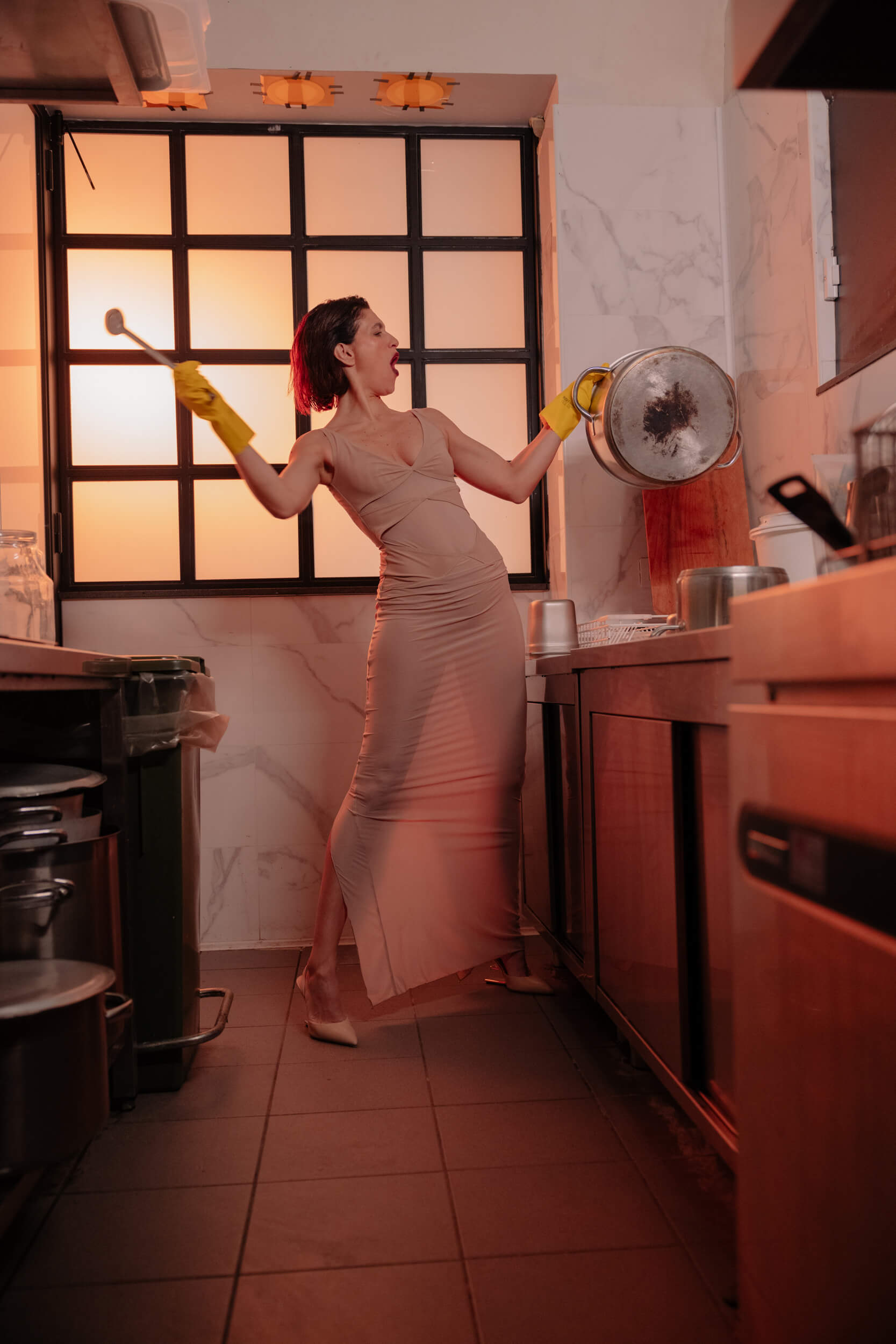
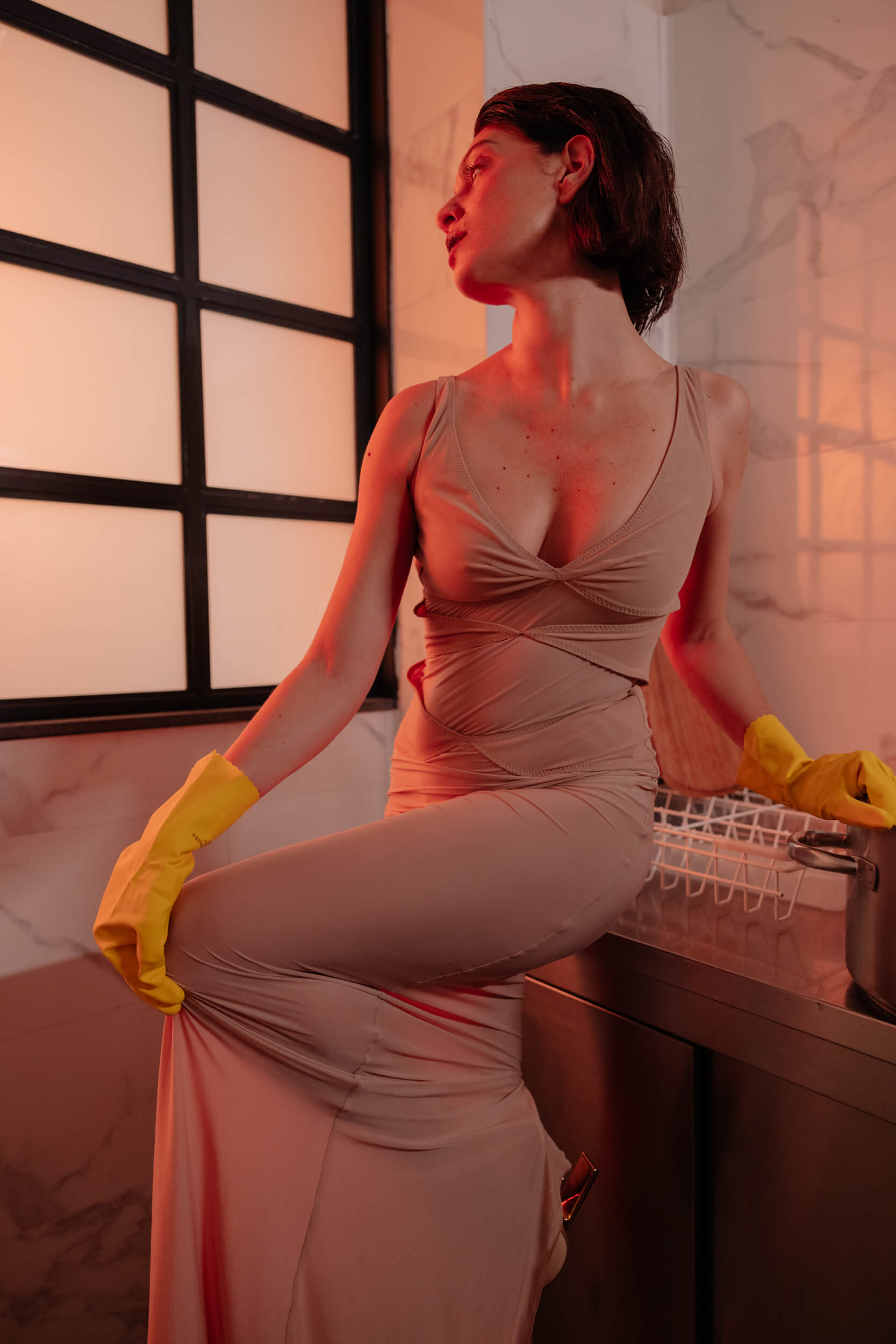
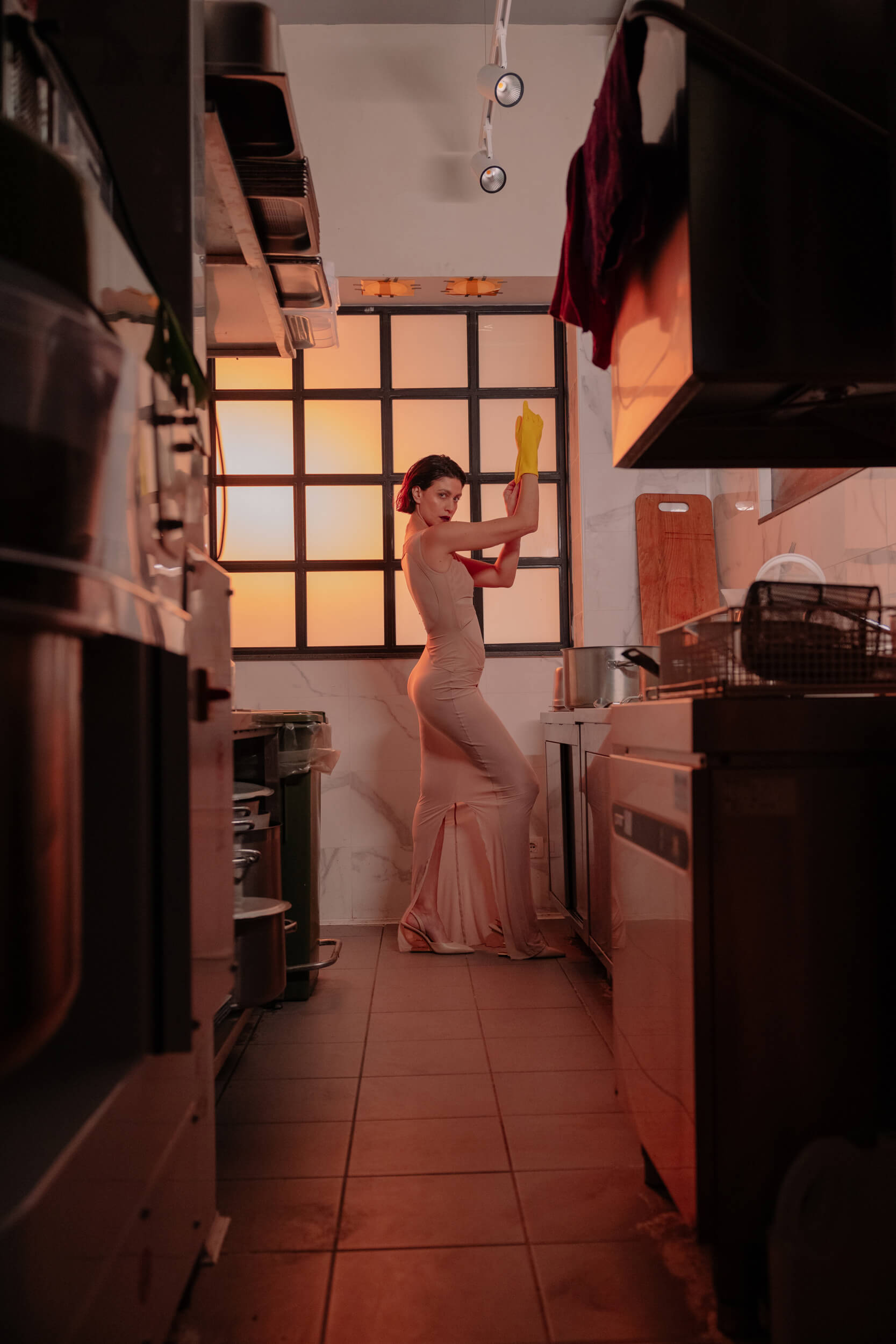
“All in all, rebellion is nothing but seconding your desire that maybe goes against some schemes, rules, and laws.”
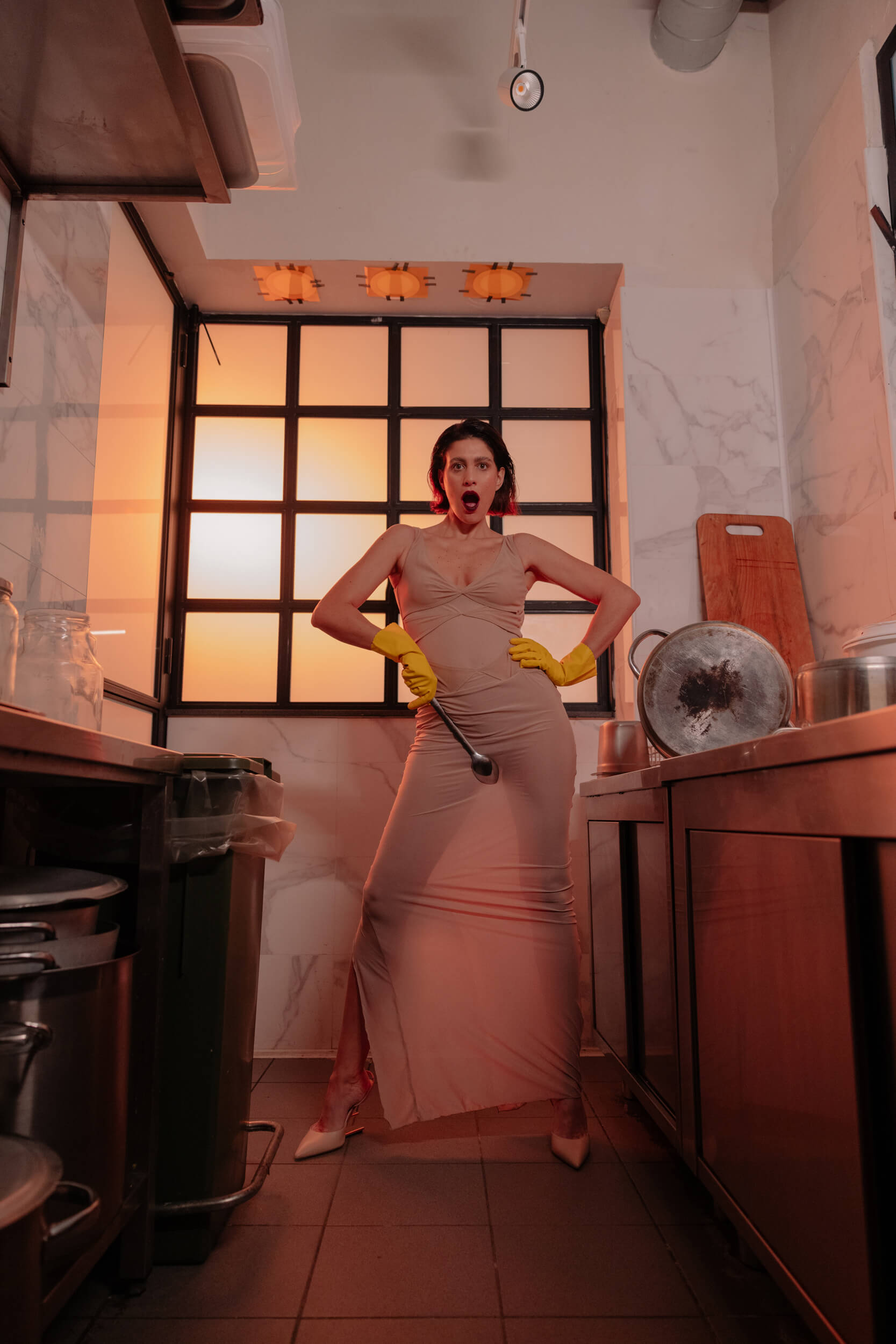
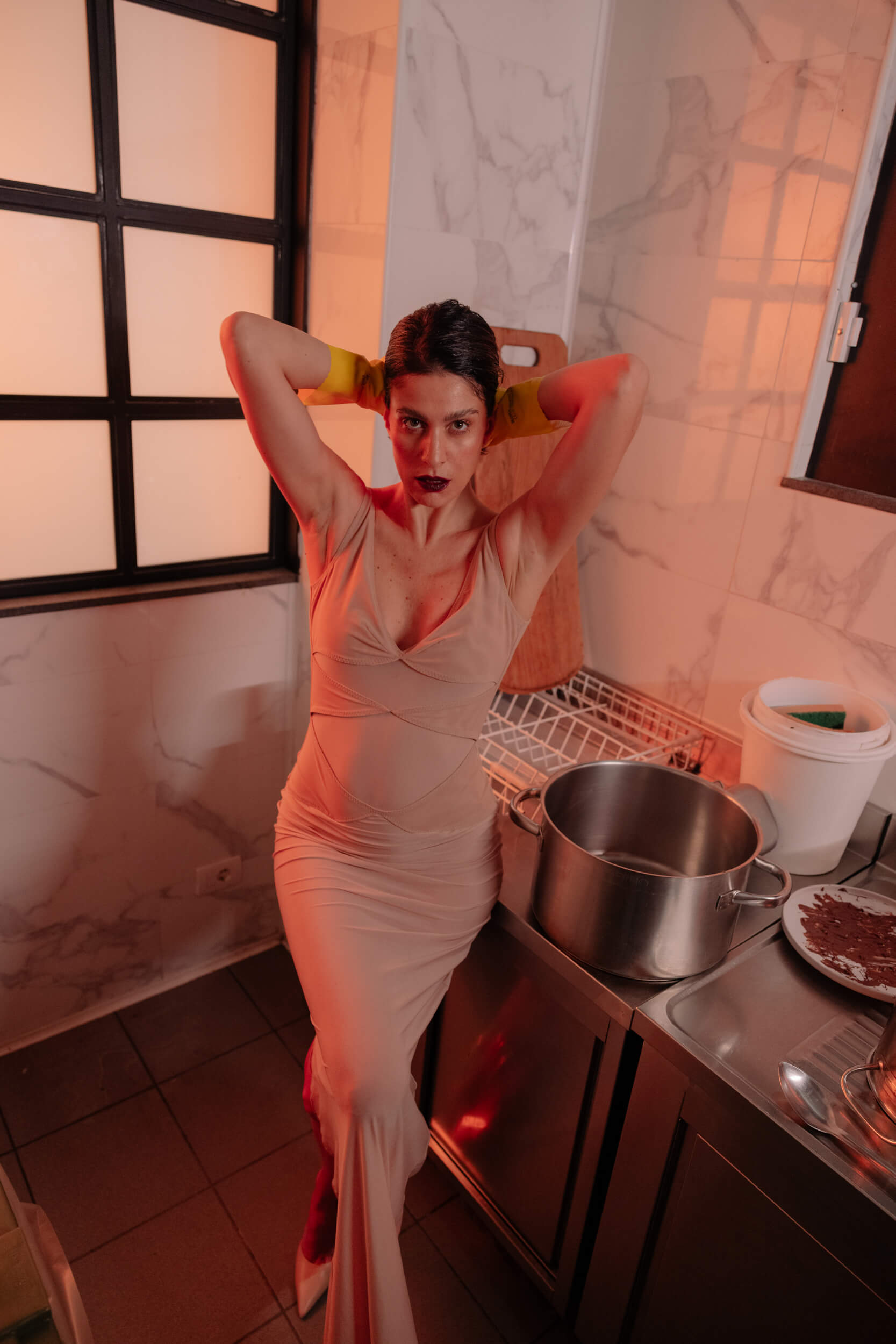
What’s your biggest fear, instead?
My biggest fear right now is nothing but my children’s health, above all.
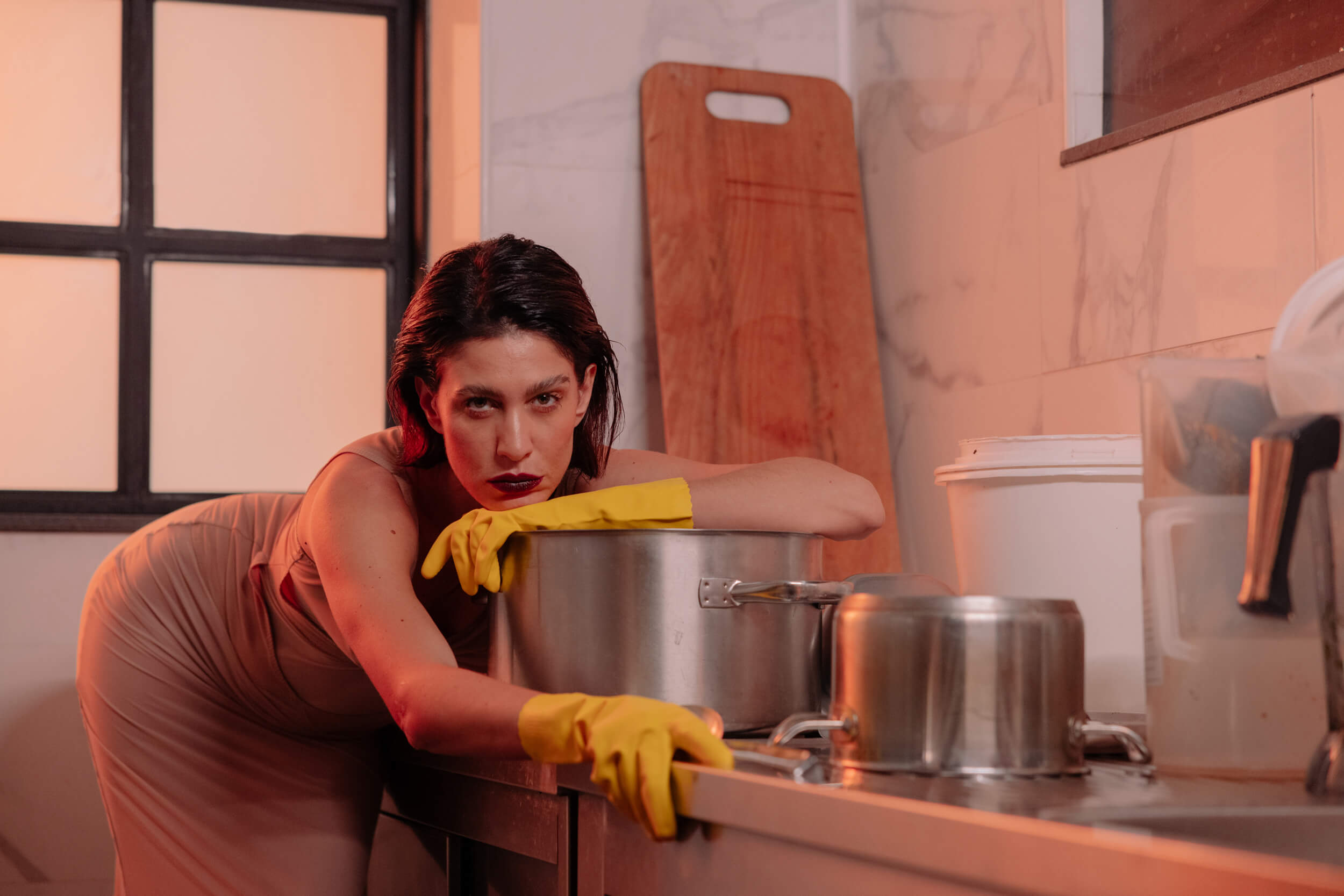
What does it mean to you to feel comfortable in your own skin?
This is a beautiful theme. It’s hard to explain what it means, but I think it has to do with the absence of judgment, with the ability to listen to yourself and others. You might feel comfortable in whatever circumstance, in any role, what matters, I think, is to follow your state of mind at that moment and I think this is something you do even when you stop being judged. If no one judged any other, no one would fear judgment in everyday life. In order to feel comfortable in your own skin, you need to listen to yourself a bit more and do what makes you feel good.
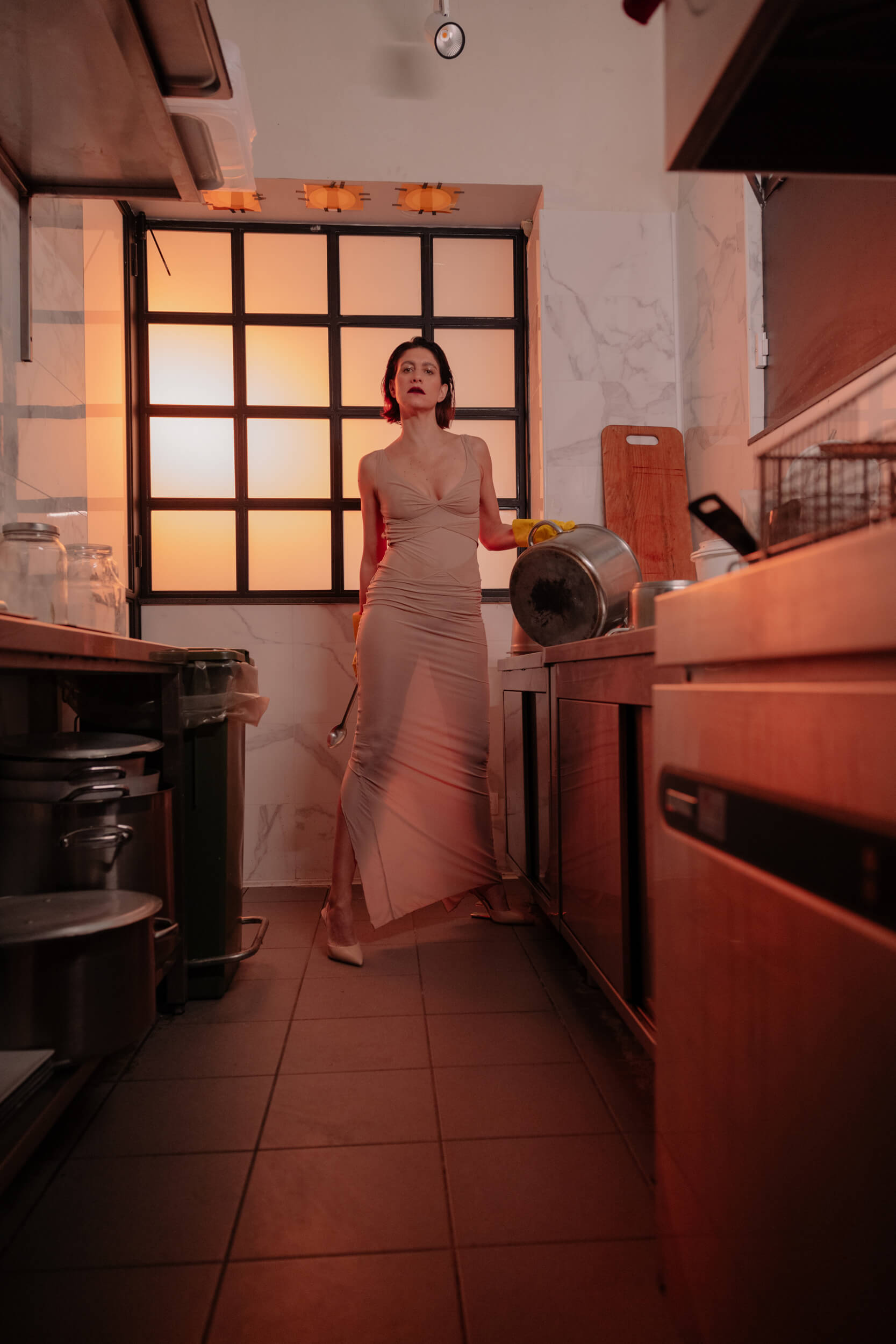
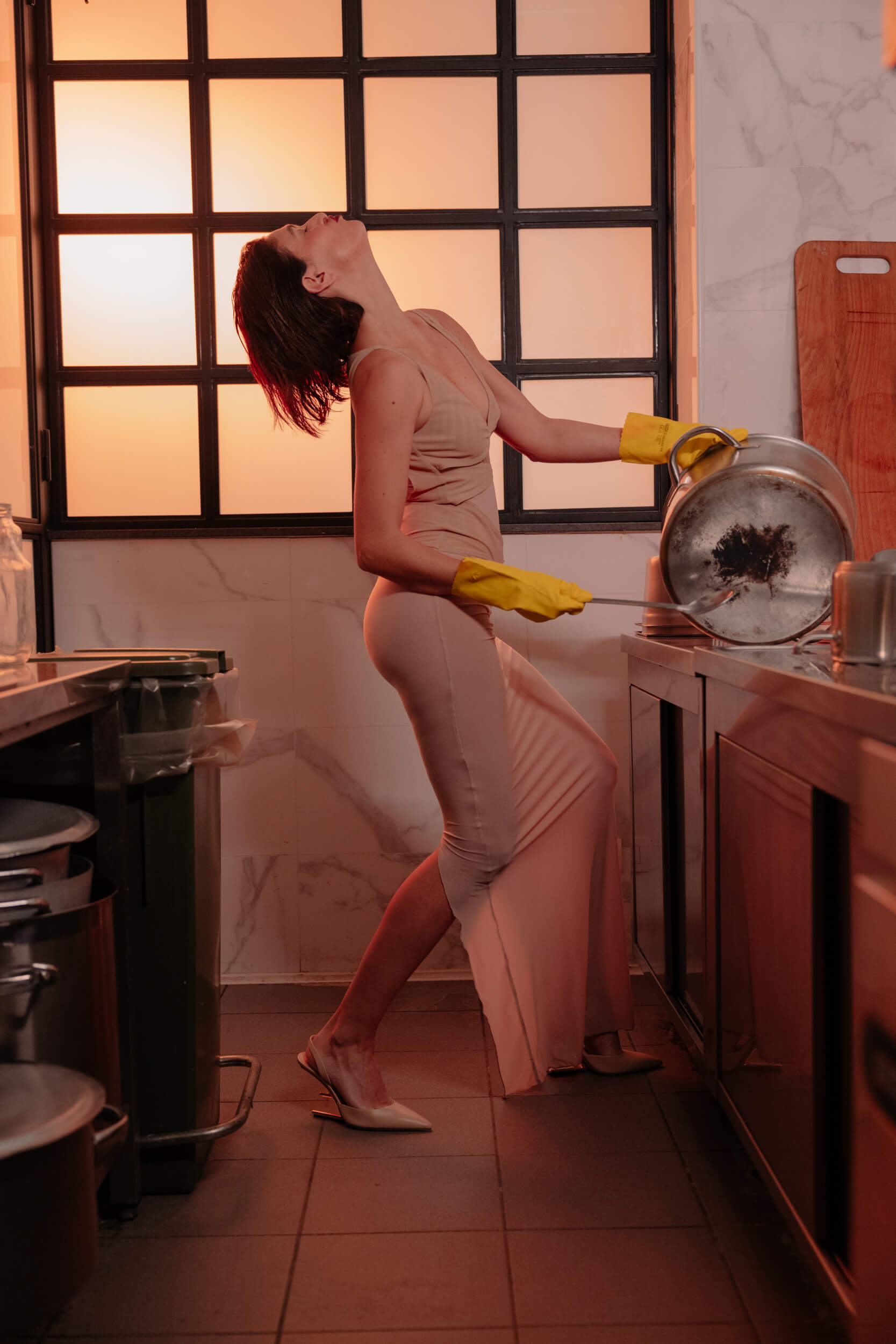
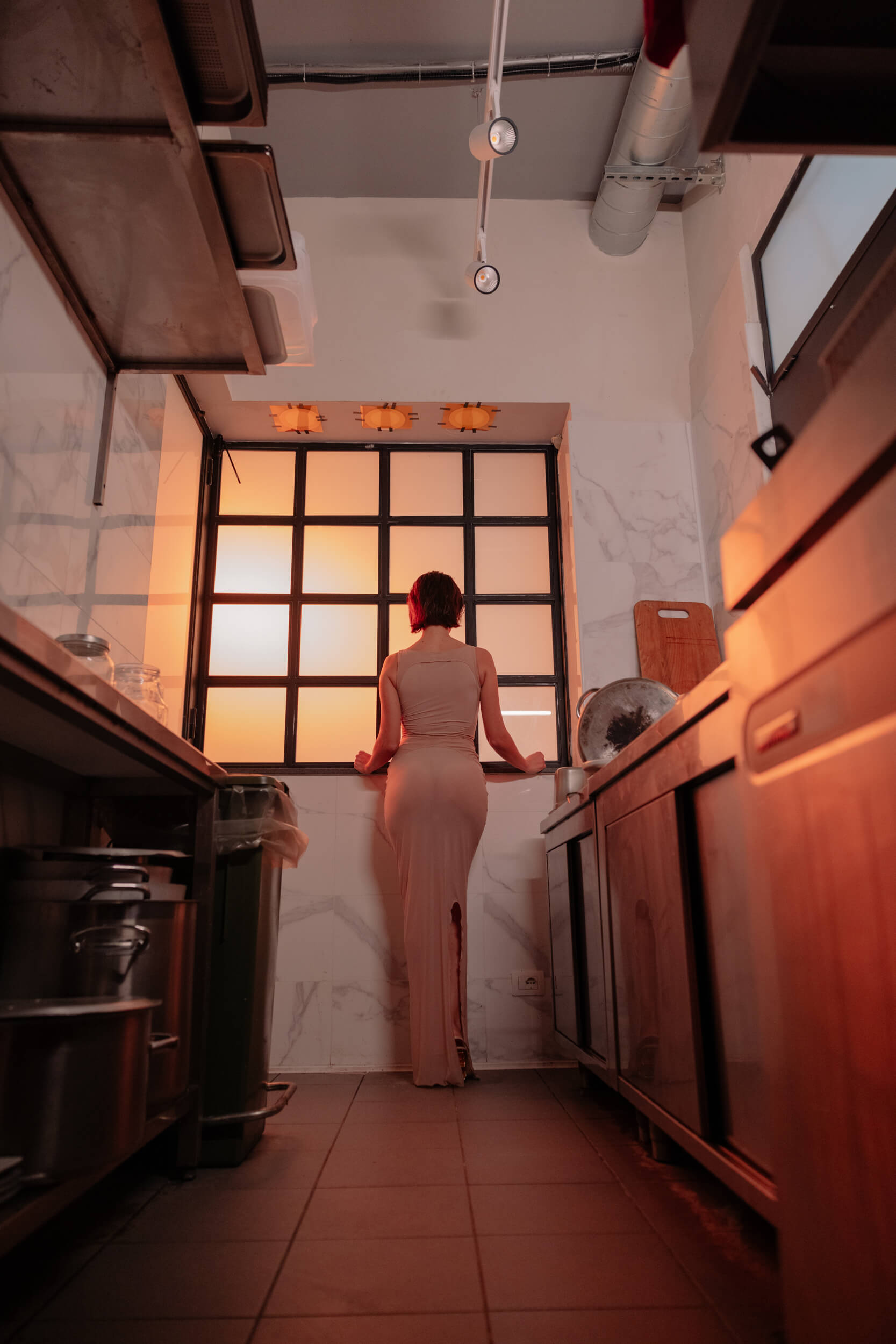
The latest thing or person to make you smile.
My children, again! [laughs] They make me laugh all the time, they’re my joy, my smiles, my strength, sometimes they also are my frustration, my fear, but no one can make you smile like kids can.
Then, my female friends make me laugh, with whom I try and always save some time to spend when I want to do something for myself, and my female friends are vital for the moments in which I want to be lighthearted and distract myself.
Then, there’s my husband: we have a similar irony, a bit cynical, and we have a lot of fun.
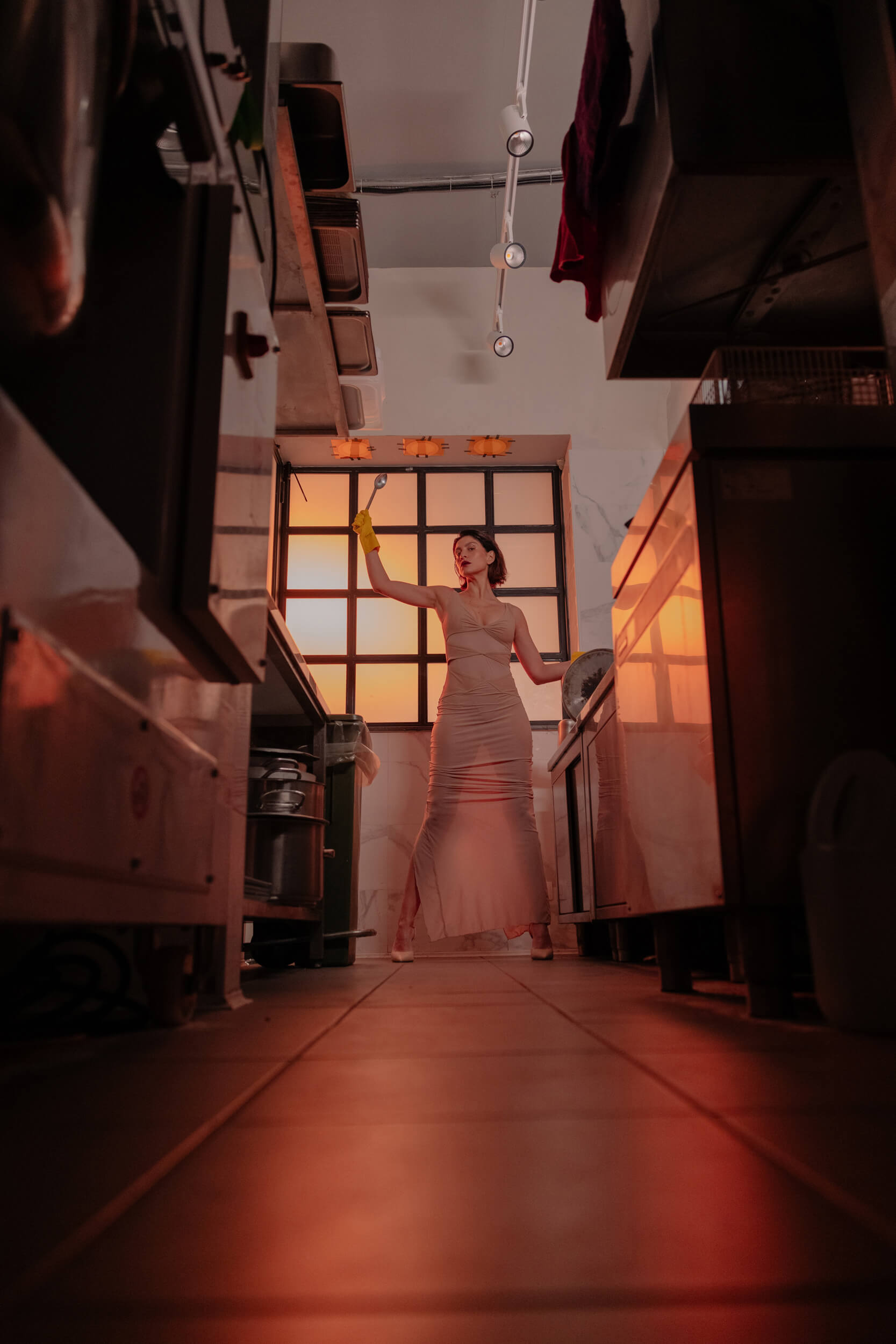
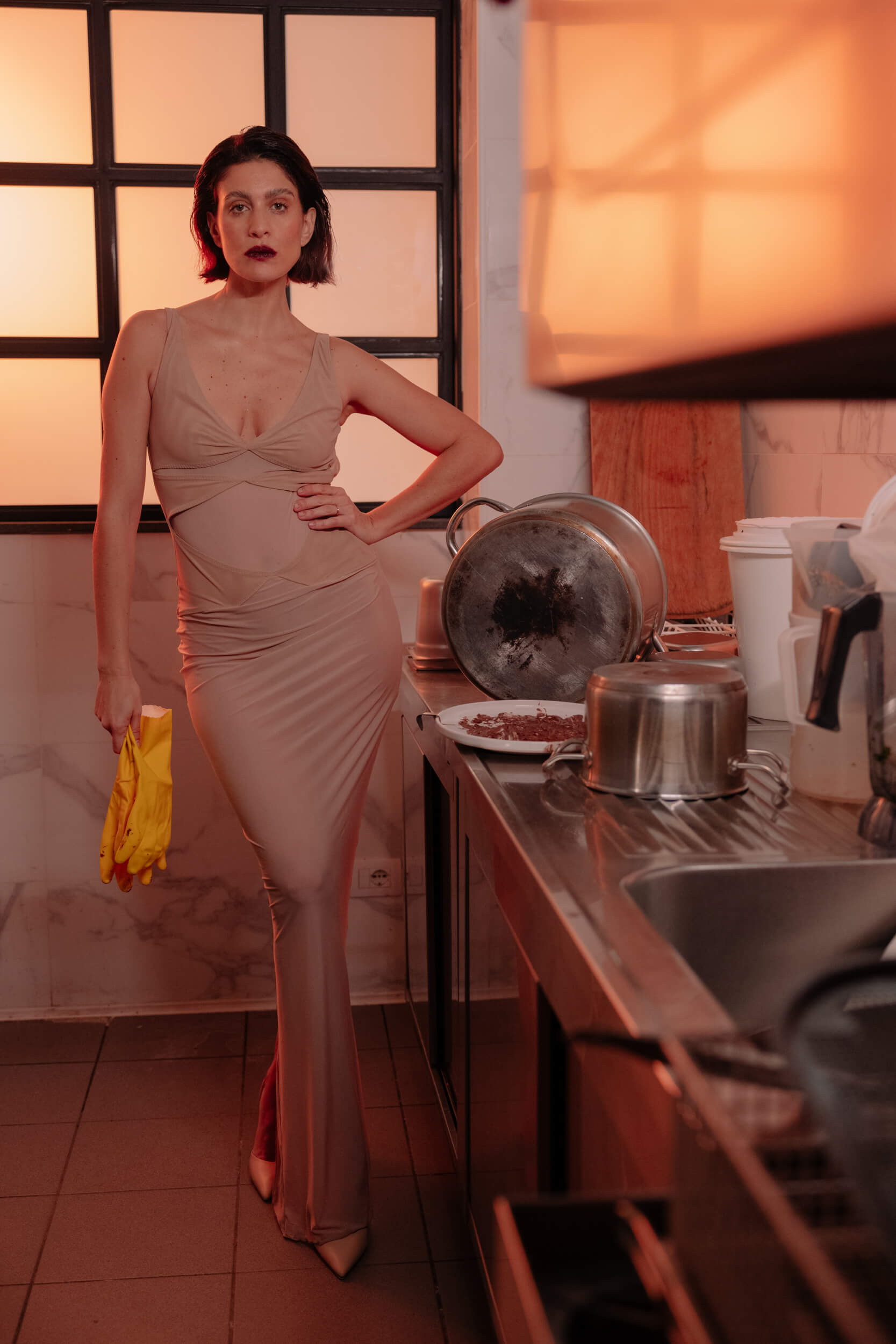
What’s your happy place?
My happy place is the set, other than my house, which, though, is also so many other things as well, it’s family, affection, love. The set, instead, it’s just mine, a place where I feel comfortable, good and happy.
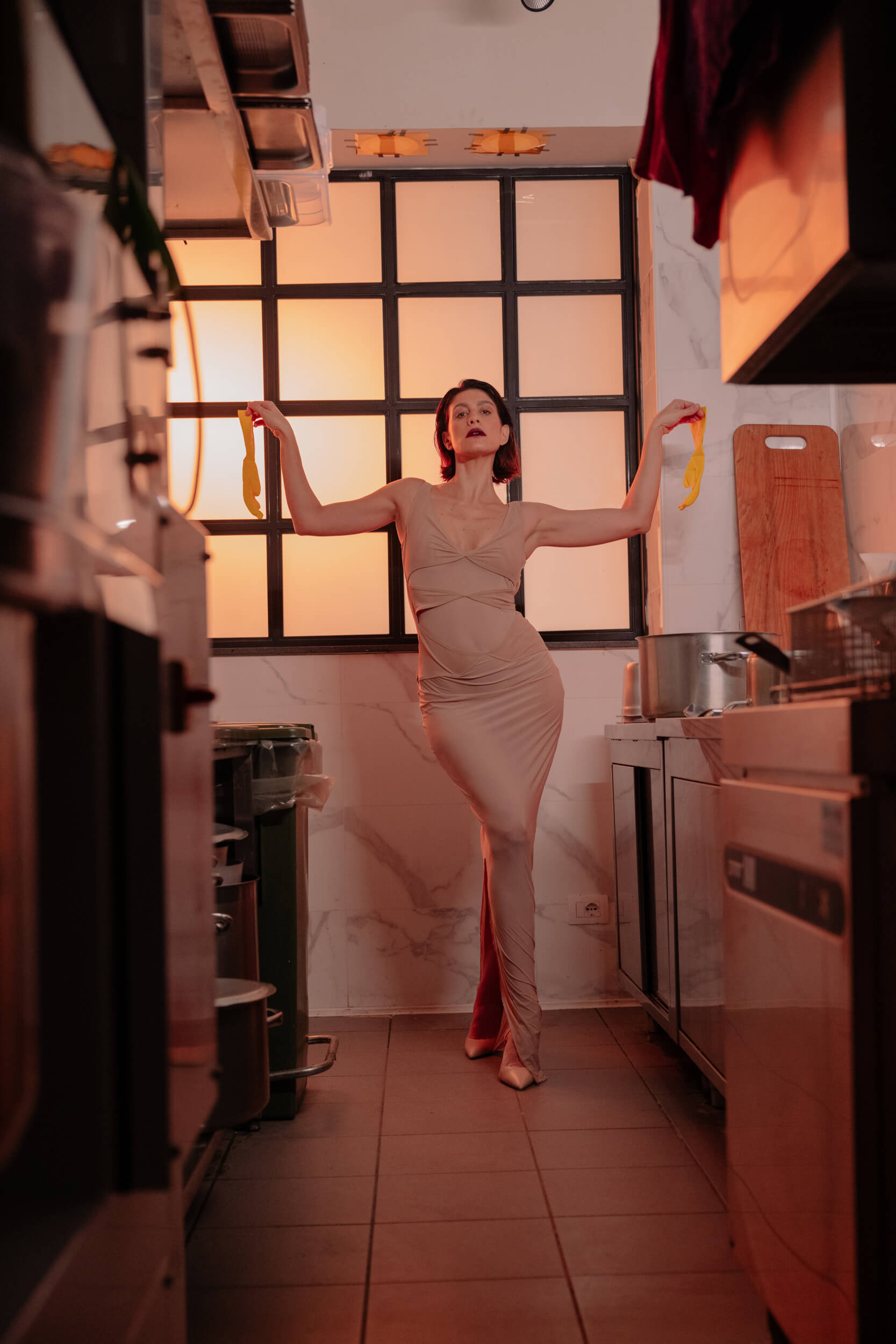
Photos by Johnny Carranno.
Makeup and Hair by Chantal Ciaffardini.
Assistant Makeup and Hair: Elisabetta Distante.
Styling by Sara Castelli Gattinara.
Assistant styling: Bianca Giampieri.
Thanks to Other srl.
Location: Freni e Frizioni Draft.
LOOK 1
Dress: Blazé Milano
Shoes: Roger Vivier
LOOK 2
Total look: Zimmerman
Earrings: Roger Vivier
LOOK 3
Total look: Blazé Milano
Shoes: Pollini
LOOK 4
Dress: Alessandro Vigilante
Shoes: Fendi

